

Introduction to Postal Facts
The United States Postal Service has a storied history, familiar to many. It began with the Second Continental Congress and Benjamin Franklin in 1775. It continued when the U.S. Constitution empowered Congress to establish Post Offices and post roads in 1787. Congress exercised those powers with the passage of the Post Office Act of 1792, which made postal services a permanent fixture of the federal government.
The act included provisions to facilitate freedom of the press, ensure the privacy of personal correspondence, and expand the nation’s physical infrastructure, all vital to the nation’s growth and prosperity. These principles and objectives endure. While email, the internet and social channels have forever altered information-gathering habits, postal correspondence remains a highly secure and resilient form of communication, providing the American people with a delivery infrastructure vital to national security.
The Postal Service’s status is unique: It is an independent agency of the executive branch, yet it is required to operate like a business. It generally does not receive tax revenues to support its operations and must compete for customers. The success of the Postal Service depends on a culture of operational precision, world-class performance, outstanding service and innovation.
The Postal Service retains the largest physical and logistical infrastructure of any non-military government institution, providing an indispensable foundation supporting an ever-changing and evolving nationwide communication network.
The Postal Service delivers more mail and packages than any other post in the world. We serve nearly 169 million addresses in this country — covering every state, city and town. Everyone living in the United States and its territories has access to postal products and services and pays the same for a First-Class Mail postage stamp, regardless of location.
We make the connections with friends and families and businesses and customers. We deliver to every community in America, from the biggest cities to the smallest villages. This is our public service mandate — to bind the nation together by providing secure, reliable, affordable delivery of mail and packages. It’s what we do!
Introduction
The U.S. Postal Service has a storied history, familiar to many. It began when delegates of the Second Continental Congress established a postal system and appointed Benjamin Franklin the first postmaster general in 1775. As the U.S. Constitution was being drafted in 1787, in it was included a provision empowering Congress to establish Post Offices and postal roads. With the passage of the Post Office Act of 1792, postal services became a permanent fixture of the federal government.
The act included provisions to facilitate freedom of the press, ensure the privacy of personal correspondence and expand the nation’s physical infrastructure — all vital to the nation’s growth and prosperity. These principles and objectives endure. While email, the internet and social channels have forever altered information gathering habits, postal correspondence remains a highly secure and resilient form of communication, and the delivery infrastructure is essential to our economy and vital to national security.
The Postal Service’s status is unique: It is an independent agency of the executive branch, yet it is required to operate like a business. It generally does not receive tax revenues to support its operations and must compete for customers. The success of the Postal Service depends on a culture of operational precision and world-class performance and innovation.
The organization retains the largest physical and logistical infrastructure of any non-military government institution, providing an indispensable foundation supporting an ever-changing nationwide communication network.
The Postal Service also delivers more mail and packages than any other post in the world. The organization serves nearly 169 million addresses in this country, covering every state, city and town. Everyone living in the United States and its territories has access to postal products and services and pays the same for a First-Class Mail postage stamp, regardless of location.
For 250 years, we’ve been making the connections with friends and families and businesses and customers. We deliver to every community in America, from the biggest cities to the smallest villages. This is our public service mandate — to bind the nation together by providing delivery of mail and packages that is affordable, reliable and secure. It’s what we do!
The Postal Service is part of the fabric of the nation, and postal employees make a difference in every community across the country. We’re committed to protecting customers, recognizing heroic employees, educating consumers about fraud and helping families have a happier holiday season.
for PTSD research
The Healing PTSD semipostal stamp has raised more than $2.2 million since 2019. More than 18 million Healing PTSD stamps have been sold.
for Alzheimer’s research
The Alzheimer’s semipostal stamp has raised nearly $1.6 million since 2017. More than 11 million Alzheimer’s stamps have been sold.
for species conservation
The Save Vanishing Species semipostal stamp has raised more than $8.2 million since 2011. Nearly 69 million Save Vanishing Species stamps have been sold.
is getting greener
The Postal Service is working hard to put its stamp on a greener tomorrow for the many communities we serve. Postal carriers deliver mail using alternative fuel vehicles, on foot and even on bicycles. Mail is delivered by bicycle on 50 routes in Florida and Arizona and more than 6,450 carriers deliver mail solely on foot.
ALERT program
As one of the few points of human contact for some homebound customers, letter carriers are particularly attuned to signs that could indicate an accident or illness. If carriers notice something unusual, such as uncollected mail at an at-risk customer’s home, the employee will alert emergency personnel. Carrier Alert began in 1982.
Awareness
Thousands of carriers deliver to homes with dogs every day. During the annual USPS National Dog Bite Awareness Campaign, the Postal Service promotes safety initiatives and shares prevention tips to protect employees and customers from dog bites.
National Dog Bite Prevention Week addresses aggressive dog behaviors that pose serious threats to Postal Service employees delivering mail and how communities they serve can play a part in their safety.
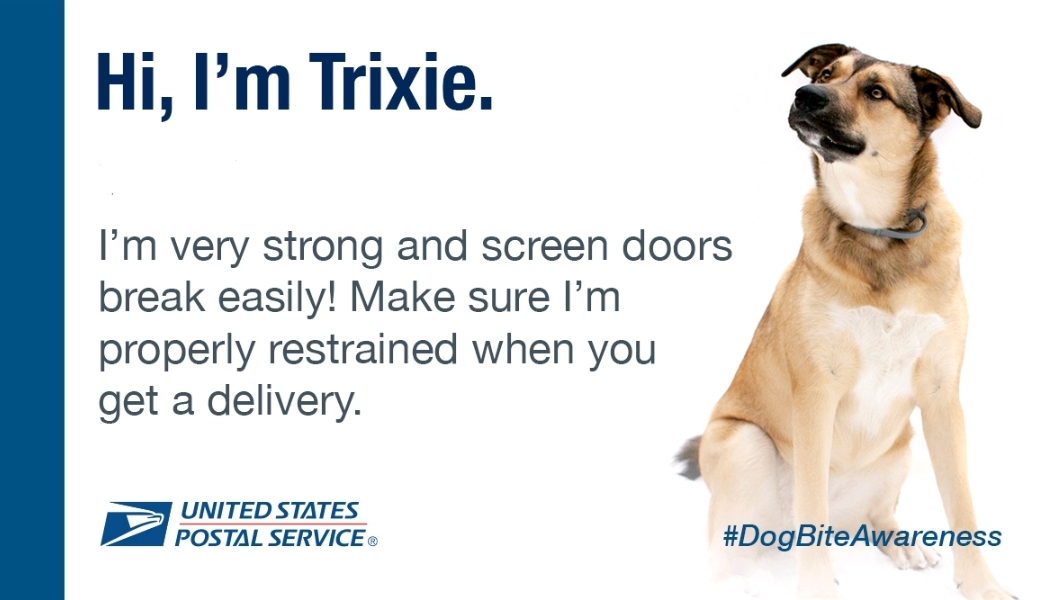
Hunger food drive
Every year, the Postal Service and the National Association of Letter Carriers hold the largest one-day food drive in the nation. The program has collected more than 1.9 billion pounds of food since the campaign began in 1993.
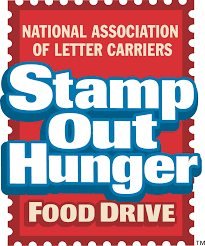
bicycle delivery routes
The Postal Service delivers mail by bicycle on 50 routes in Arizona and Florida, reducing emissions and saving fuel.
gallons of oil recycled
In 2024, the Postal Service recycled 332,500 gallons of used oil — equivalent to saving more than 14 million gallons of crude oil.
pounds of batteries
The Postal Service recycled 75,000 pounds of small lead-acid and dry cell batteries, including lithium-ion batteries, which are found in cellphones, laptops, scanners and other small electronics.
service men and women
Honoring service members. The Postal Service proudly partners with the U.S. Department of Veterans Affairs to provide burial flags to families of deceased veterans. In 2024, the Postal Service provided 348,285 burial flags.
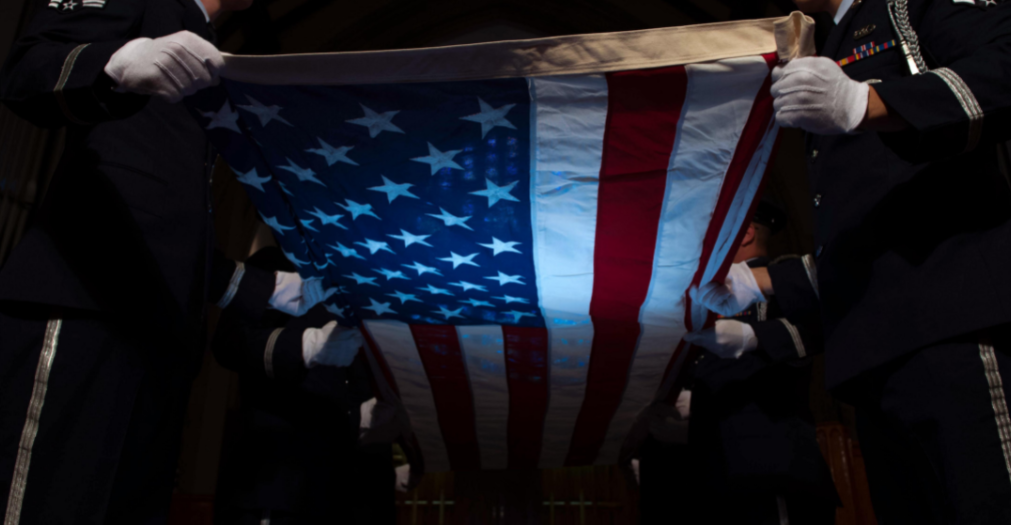
The U.S. Postal Service upholds its promise to deliver the nation’s Election Mail securely and on time, consistent with the organization’s non-partisan public service mission.
Election Mail consists of mail to or from election officials,
including ballots, ballot applications, registration forms
and other items that enable citizens to participate in the voting process. The Postal Service is committed to delivering the nation’s Election Mail securely and on time, consistent with the organization’s nonpartisan public service mission.
During the general election period of Sept. 1-Nov. 15, 2024, the Postal Service delivered at least 99.22 million ballots to or from voters.
The Postal Service supports voters choosing to use the U.S. Mail to return their ballots, whether it’s for a seat on the local school board or for the president of the United States — and everything in between.
39,000 pounds of batteries
In 2024, the Postal Service recycled 75,000 pounds of small lead-acid and dry cell batteries, including lithium-ion batteries, which are found in cellphones, laptops, scanners and other small electronics.
Environmental Management: Putting our Stamp on a Greener Tomorrow
Compliance with environmental requirements provides a foundation for healthier air and waterways and sustainability success.
solar panels
Sunny times ahead. The Postal Service has a solar power generation system consisting of more than 25,755 solar panels at its Los Angeles mail processing facility.
for consumers
During National Consumer Protection Week, the Federal Trade Commission’s annual awareness campaign, USPS and the Inspection Service provide customers with education, tools and information to combat identity theft and mail fraud.
Operation Santa
USPS Operation Santa. This program is in its 113th year of operation and relies solely on random acts of kindness and the generosity of strangers. In 2024, millions of people visited uspsoperationsanta.com. Generous customers adopted letters written to Santa and fulfilled wishes, helping families and children experience the magic of the season when they might not have otherwise, one letter to Santa at a time.

For more information, go to USPSOperationSanta.com.
In 2020, the program expanded nationwide for the first time. More than 1 million people visited USPSOperationSanta.com. Generous customers shipped more than 21,000 packages to the families and children who wrote to Santa to help them have a happier holiday.
In 2019, the digital program continued to expand. Letters were accepted letters from 17 locations, and the letters could be adopted by anyone in the country. Gifts could be shipped from more than 19,000 post offices.
In 2018, the Postal Service expanded the 2017 pilot test to include 6 additional cities (Austin, Indianapolis, Philadelphia, Phoenix, San Diego, Washington DC – and Puerto Rico and Chico, CA (site of wildfires). Letters from those locations populated the website and people in those locations only could adopt them and ship from one dedicated post office per city.
In 2017, the Postal Service launched a pilot test of a digital Operation Santa option for residents of New York City. People living in New York City, within proximity of the James A. Farley building could adopt letters online and ship gifts from JAF. Puerto Rico was also added after the hurricanes that year.
HISTORY
In 1912, Postmaster General Frank Hitchcock authorized local postmasters to allow postal employees and citizens to respond to letters addressed to Santa Claus and the program came to be known as Operation Santa.
In the 1940s, mail volume increased to the point where the Post Office Department invited charitable organizations and corporations to participate for philanthropic purposes —providing written responses and small gifts.
Through the years, the program has taken on a life of its own and today cities around the country have established successful programs with recognized charitable organizations, major corporations, local businesses and postal employees making a major difference in the lives of the children from coast to coast.

alternative fuel vehicles
The Postal Service operates a fleet of 31,866 alternative-fuel vehicles, including electric, hybrid, ethanol, compressed natural gas and liquid propane gas vehicles.
for breast cancer research
The Breast Cancer Research semipostal stamp has raised nearly $98 million since 1998. More than 1.1 billion Breast Cancer Research stamps have been sold.
The Postal Service is part of the fabric of the nation, and postal employees make a difference in every community across the country. We’re committed to protecting customers, recognizing heroic employees, educating consumers about fraud and helping families have a happier holiday season.
BULLETIN
On time. Every time. The Postal Bulletin, a nationally distributed biweekly publication, serves as a source for official policy, procedure updates and departmental news for all Postal Service functions. It has never missed a deadline since its inception in 1880.
Go to about.usps.com/resources/postal-bulletin.htm to browse past issues.
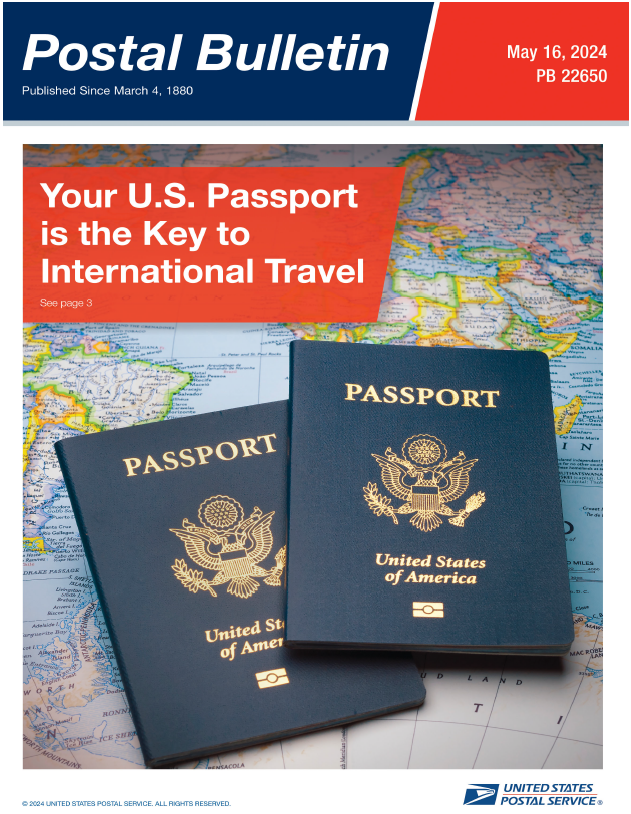
of our domains
The Postal Service owns 1,958 internet domains.
our mark
The Postal Service has 414 domestic and 982 foreign trademark registrations.
the best
Patently the best. The United States Patent and Trademark Office has issued more than 700 patents to the Postal Service.

social network
The Postal Service is the original social network, but that doesn't mean we aren't represented on the other, newer social networks. You can find the Postal Service on Facebook, Instagram, LinkedIn, Pinterest, Threads, X and YouTube. We also have a blog and a podcast.
unstaffed Post Office
One of a kind. There is a 24-hour, unstaffed, self-service Post Office in Vienna, VA, that allows customers to conduct most shipping and mailing transactions quickly and easily themselves. The self-service Post Office provides round-the-clock accessibility to P.O. Boxes, as well as self-service kiosks and an automated package drop.
delivered by mail
The farm-to-table concept isn’t new. From 1914 to 1920, the farm-to-table program was a novel initiative that allowed farmers to arrange prices with people in urban areas and then mail them fresh meats, eggs, dairy products, produce, honey, jelly and more. This was a way to give farmers more customers and city dwellers greater and cheaper access to fresh goods.
CREATIVE
© is for creative. The Postal Service has more than 500 copyright registrations, many of them to protect artwork on postage stamps.
deliver!
The Postal Service moves mail by planes, hovercraft, trains, trucks, cars, boats, ferries, helicopters, subways, bicycles, mules and feet.
JUST NUTS!
Coconuts can be mailed without a box. Simply address the coconut and add your return addresses on the husk, have it weighed for appropriate postage, and it is shipped as-is. Photo: Coconuts ready for mailing at the Molokai, HI, Post Office.

potatoes in the mail
It's SPUDTACULAR! As with coconuts, potatoes can be mailed without a box. Simply write the address it's going to and your return addresses on the spud, have it weighed for appropriate postage, and it can be shipped as-is. Let someone know they are special. Send a tater!

in the mail
Hope in the mail. In 1958, luxury jeweler Harry Winston donated the Hope Diamond to the Smithsonian Institution. With his years of experience in shipping jewelry all over the world, Winston sent the diamond via Registered Mail service with the Post Office Department.

The diamond was placed in a box, wrapped in brown paper, and sent by registered mail from New York in a Railway Post Office train car. In Washington, DC, it was picked up by a mail carrier and driven to the National Museum of Natural History. The price paid for shipping the gem, valued at $1 million at the time, was $145.29, most of that for package insurance.
gold in the mail
Under the watchful security of the Postal Inspection Service, Railway Mail Service clerks transferred some of the $9 billion in gold bullion shipped as Registered Mail from the New York City Assay Office to the depository at Fort Knox, KY, in 1941.
The Inspection Service provided security and management in the cooperative effort between the Post Office Department, local law enforcement, U.S. Army and U.S. Treasury Department.
in the mail??
Do not try to ship your kids! In the early days of Parcel Post service, a few parents managed to mail their children to relatives. In 1913, an 8-month-old baby in Ohio was mailed by his parents to his grandmother, who lived a few miles away. The baby was safely delivered! Regulations were quickly established to prevent any additional mailing of children through the U.S. Mail.

BRICK IN THE MAIL
Individual bricks can be shipped in the U.S. Mail. Get a permanent marker, write the address and your return address, get it weighed and add the postage. Send that special someone a brick of affection.
Just don’t think you can send enough bricks to build a house or, perhaps a bank. Been there. Done that. You can read about the bank of Vernal, UT, here.

the ZIP Code
The Zoning Improvement Plan (ZIP) Code was launched in 1963 to better process and deliver increasing volumes of U.S. Mail. The first number in the five-digit ZIP Code represents a general geographic area of the nation, “0” in the east, moving to “9” in the west. The next two numbers represent regional areas, and the final two identify specific Post Offices. In 1983, the ZIP+4 Code was introduced.
Decoding the code. In 1983, the ZIP+4 Code was introduced. The extra four numbers enable mail to be sorted to a specific street. In 1991, two more numbers were added so that mail could be sorted directly to a residence or business. Today, the use of the ZIP Code extends far beyond the mailing industry, including being a fundamental component in the nation’s 911 emergency system.
There are 41,552 ZIP Codes in the country. They range from 00501, belonging to the Internal Revenue Service in Holtsville, NY, to 99950 in Ketchikan, AK. Easiest to remember? How about 12345, a unique ZIP Code for General Electric in Schenectady, NY.
Mr. ZIP helped promote the new ZIP Code concept in 1963.
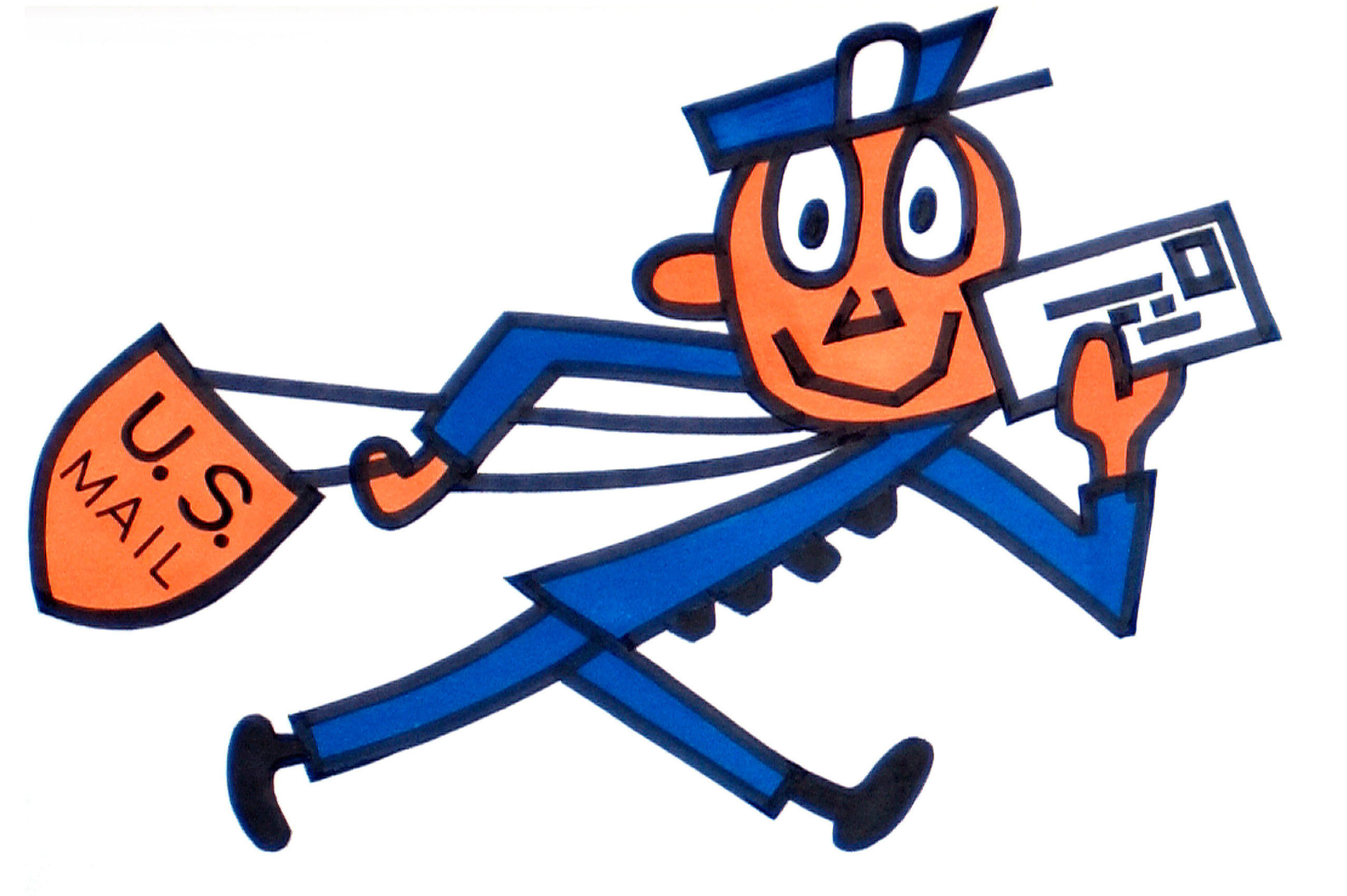
PO made of straw
In Corrales, NM, in 1999, a new Post Office was built with more than 900 bales of straw as insulation. The Post Office is still standing strong and saving energy — a proud testament to the Postal Service’s longstanding history of sustainable practices.
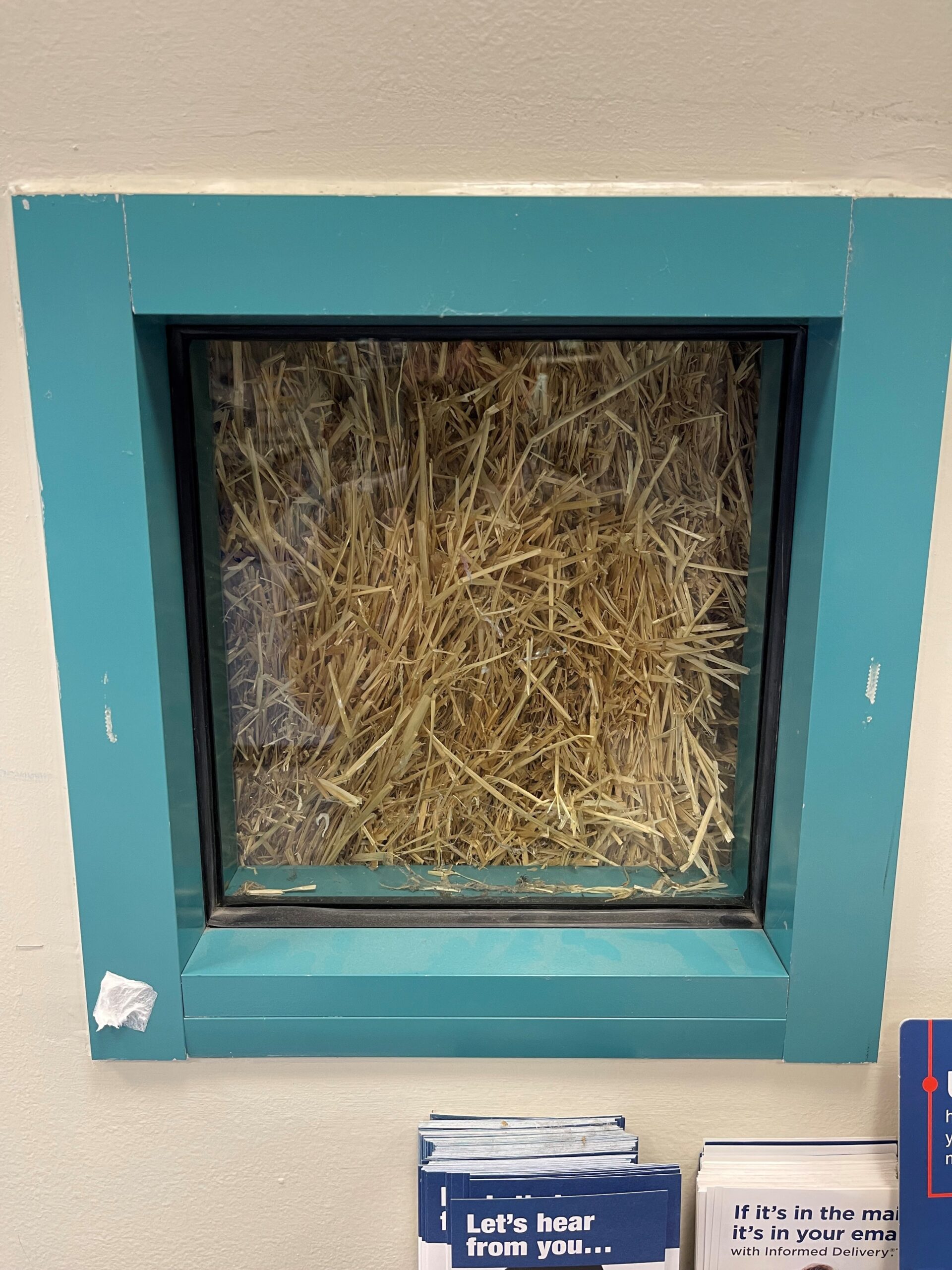
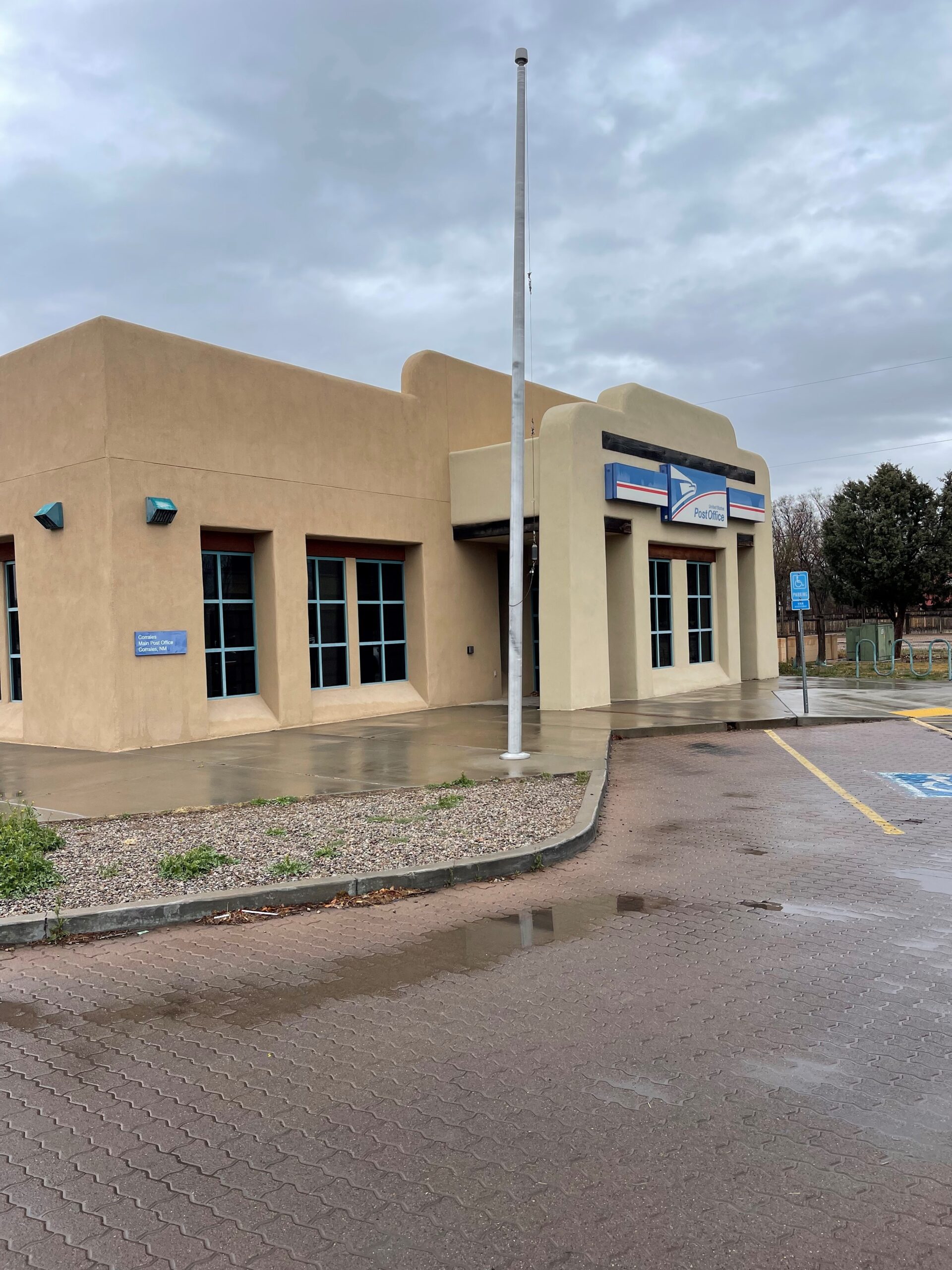
Corrales NM Post Office
We can still read it!
Chicken scratch. The Postal Service has an entire operation dedicated to deciphering poor penmanship.
Letter mail at a processing plant that cannot be read by the automated equipment has an image taken and transmitted to the Remote Encoding Center (REC). At the REC, employees look at the image and type in address information. The information is matched up with a valid address, the data is transmitted back to the equipment at the plant, and a barcode is printed on the letter. That barcode can be read by any letter processing machine in the Postal Service, keeping the letter within the automated stream of mail in the postal network.
Post Office
This Post Office floats! The Halibut Cove Post Office (99603) in Homer, AK, floats. The office is a small houseboat that is permanently tied to a dock.

Flies Here
No high-flying flag here. The B. Free Franklin Post Office in Philadelphia, which is part of Independence National Historical Park, does not fly the U.S. flag. This office aims to recreate the atmosphere of a colonial-era Post Office, and the Stars and Stripes did not yet exist in 1775.
Franklin used to own the building and there is a small museum on the second floor.
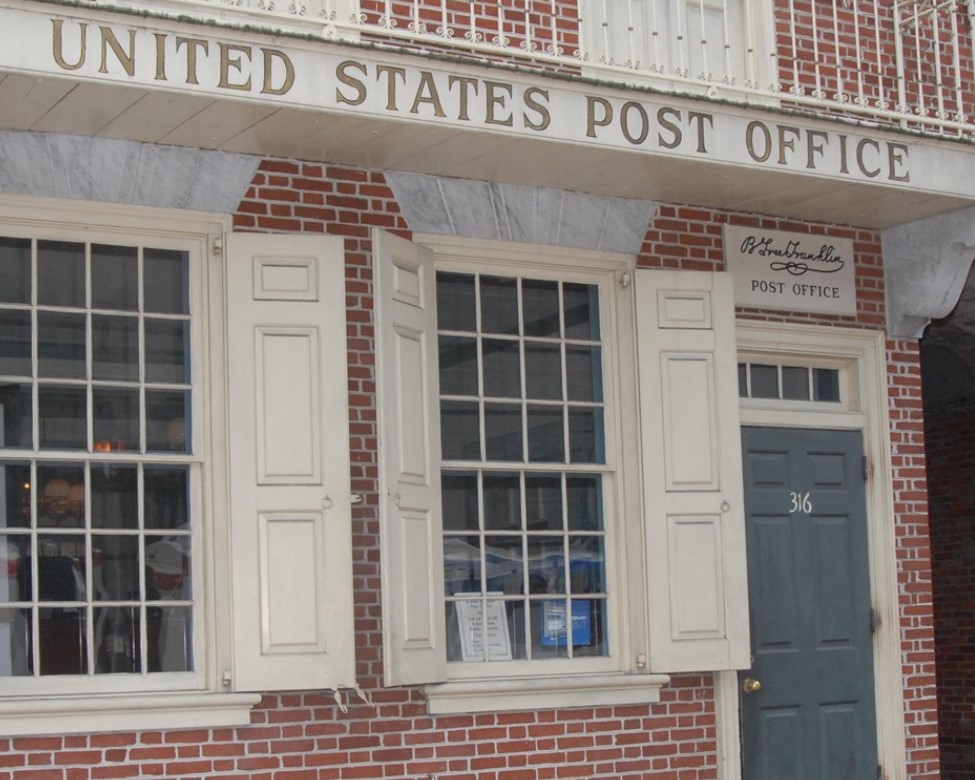
rubber bands
Boing! The Postal Service ordered more than 491 million rubber bands in 2024, which totals 27,152 miles of material, or one trip around the world.

blue collection boxes
Iconically ours. There are approximately 124,000 iconic blue collection boxes in use on street corners across the nation.
About those iconic blue boxes…
They weren’t always blue. Before 1970, they were green, then red, then white, then green again, and finally — beginning in 1955 — red, white and blue.
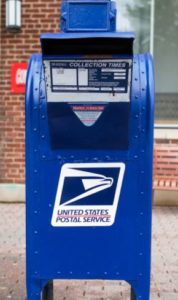
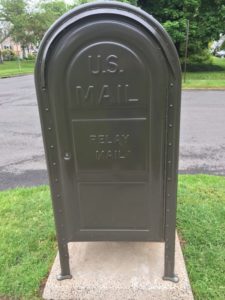
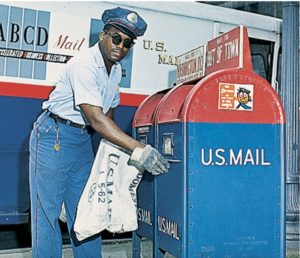
rubber bands
Boing! The Postal Service ordered more than 491.7 million rubber bands in 2024, which totals 27,152 miles of material, or one trip around the world.

postage stamp
A postage stamp was onboard NASA's New Horizons spacecraft that made a flyby of Pluto in July 2015. That’s the farthest distance traveled by a postage stamp — more than 3 billion miles, as noted by Guinness World Records.
The “Pluto: Not Yet Explored” 29-cent stamp was part of a set of solar system stamps that were issued in 1991. In 2015, the stamp made a flyby of Pluto while onboard NASA’s New Horizons spacecraft. Guinness World Records confirmed the more than 3-billion-mile journey is the farthest distance traveled by a postage stamp.
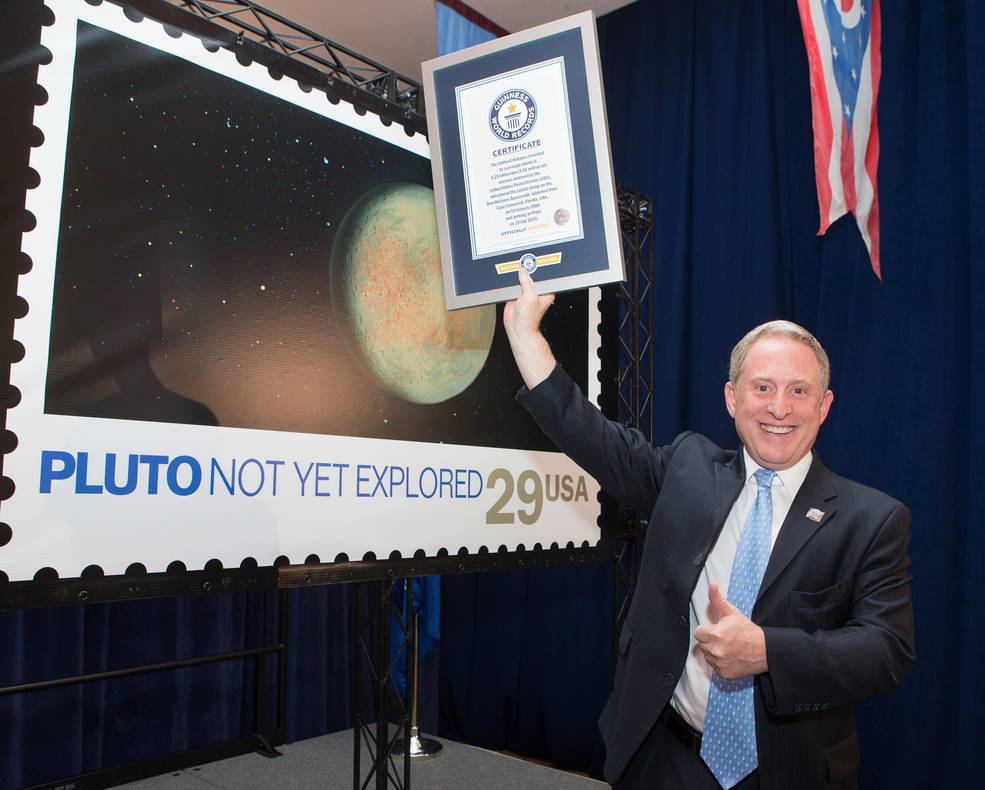
that motto
The U.S. Postal Service has no official motto. Nope, it’s not this phrase: “Neither snow nor rain nor heat nor gloom of night stays these couriers from the swift completion of their appointed rounds.” But we certainly appreciate the sentiment.
About that motto…
Those words are engraved on the front of the James A. Farley Post Office in New York City, set in stone by the architectural firm that built it. The phrase is taken from an ancient book by the Greek historian Herodotus and refers to messengers in the Persian Empire.
The phrase comes from book 8, paragraph 98, of The Persian Wars by Herodotus, a Greek historian. During the wars between the Greeks and Persians (500-449 B.C.), the Persians operated a system of mounted postal couriers who served with great fidelity.
The popular belief that Herodotus’s description of the Persian postal service is about the U.S. Postal Service is a tribute to the hundreds of thousands of men and women who have delivered the mail reliably and dependably, through all conditions, for centuries.

ZIP Codes
There are 41,552 ZIP Codes in the country. They range from 00501, belonging to the Internal Revenue Service in Holtsville, NY, to 99950 in Ketchikan, AK. The easiest ZIP Code to remember? How about 12345, a unique ZIP Code for General Electric in Schenectady, NY.
Quick! What’s that ZIP Code?
The Zoning Improvement Plan (ZIP) Code was launched in 1963 to better process and deliver increasing volumes of U.S. Mail. The first number in the five-digit ZIP Code represents a general geographic area of the nation, “0” in the east, moving
to “9” in the west. The next two numbers represent regional areas, and the final two identify specific Post Offices. In 1983, the ZIP+4 Code was introduced.
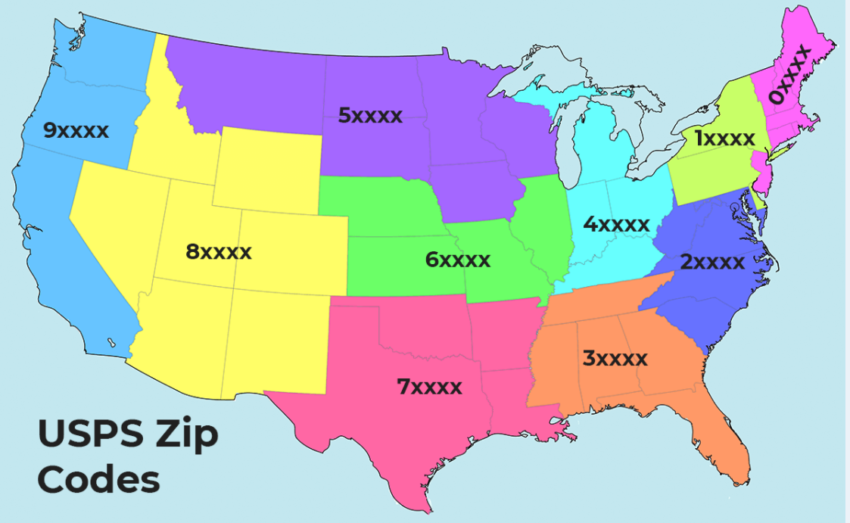
miles traveled
Stellar performance! During 2023, Postal Service employees traveled more than 1.2 billion miles to deliver your mail, equivalent to 48,191 laps around Earth, 5,023 trips to the moon or 13 trips to the sun.
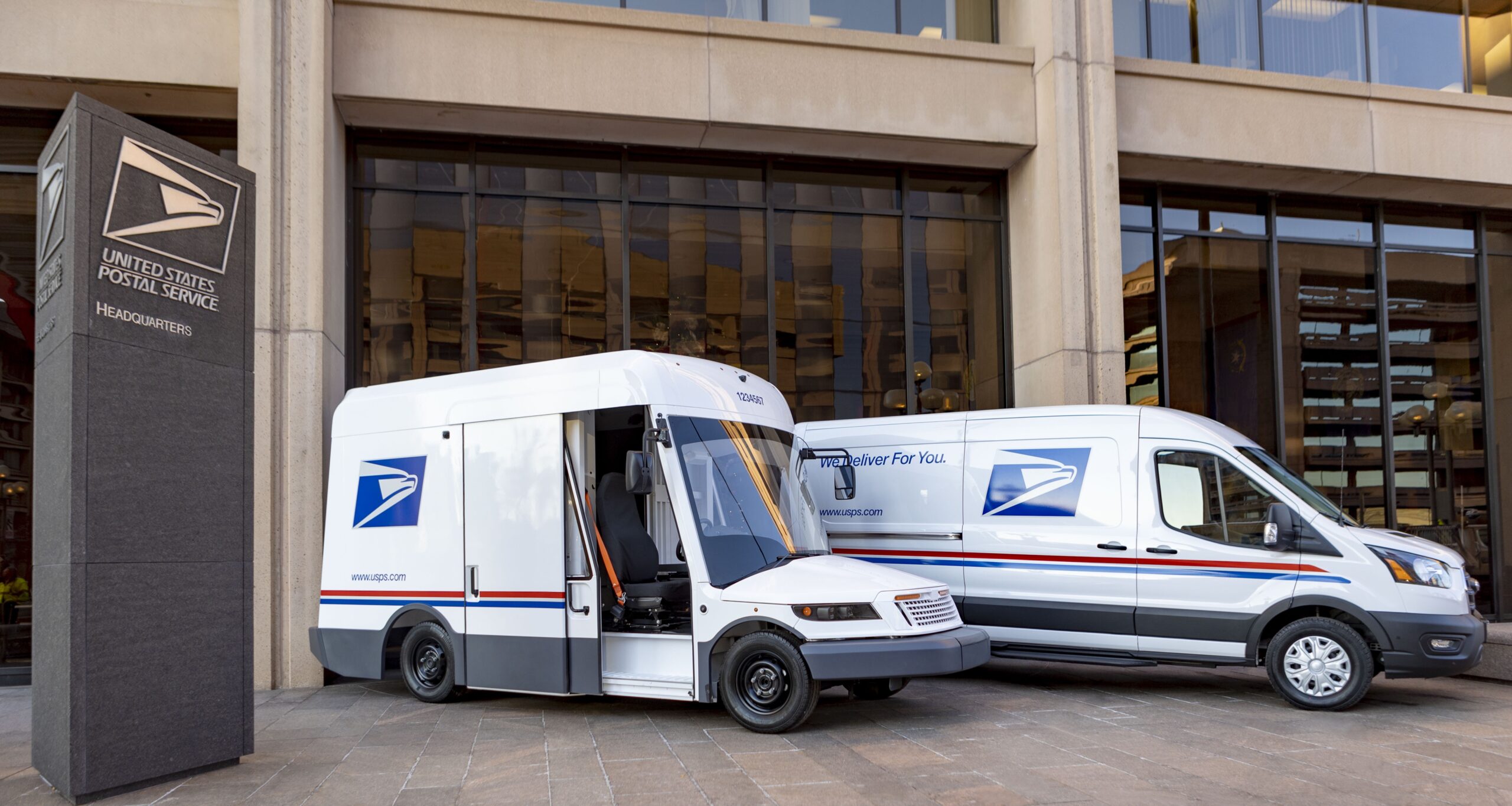
deliveries from one office
The Post Office location with the most possible street deliveries is Heritage Station in San Antonio, TX (78245, 78250, 78251, 78253) — with 116,628 deliveries.
The Postal Service is part of the fabric of the nation, and postal employees make a difference in every community across the country. We’re committed to protecting customers, recognizing heroic employees, educating consumers about fraud and helping families have a happier holiday season.
Postal Inspection Service
The U.S. Postal Inspection Service was established Aug. 7, 1775, and is America's oldest federal law enforcement agency.
ZIP Code introduced
July 1, 1963: The five-digit ZIP Code was introduced.
rural free delivery
July 1, 1902: Rural free delivery became a permanent service in America.
Lunar New Year stamp series
In 1992, the first stamp in the Lunar New Year stamp series was issued and celebrated the year of the rooster.
LOVE at first sight
The first stamp in the Love stamp series was issued in 1973 and was designed by pop artist Robert Indiana.
1st Christmas-themed stamp
Nov. 1, 1962: The first Christmas-themed U.S. postage stamp was issued.
FIRST ARCTIC POST OFFICE
Oct. 6, 1933: The first U.S. Post Office was established in Antarctica.
1st National Postal Forum
Sept. 14, 1967: The Post Office Department held the first National Postal Forum (NPF) in Washington, DC.
corporate logo trademark
Sept. 12, 1995: The USPS corporate logo became a registered trademark.
moon landing postmark
July 22, 1969: The crew of Apollo 11 canceled the first piece of mail carried to the moon with a postmark reading, “Moon Landing, U.S.A.” Although the postmark was dated July 20, the first chance the crew had to cancel the envelope was two days later on the journey home.
first circular stamp
July 7, 2000: The first circular U.S. postage stamp, the $11.75 "Space Achievement and Exploration" Express Mail stamp, was issued. It featured a hologram of Earth — another first.
U.S. Postal Service begins
July 1, 1971: The United States Postal Service, the successor of the Post Office Department, officially began operations.
1942
June 15, 1942: Victory Mail service — V-Mail for short — began for deployed members of the U.S. armed forces during World War II. More than 1 billion Victory-Mail letters were delivered between June 1942 and November 1945.
to Launch — 1959
June 8, 1959: Mail was dispatched by guided missile from a U.S. Navy submarine to a naval air station in Florida.
Certified Mail service
The Post Office Department began Certified Mail service in June 1955.
first U.S. airmail route
May 15, 1918: The Post Office Department began scheduled airmail service between New York and Washington, DC — the first airmail route in the United States.
1973
Male letter carriers were first allowed to wear shorts during the summer on April 1, 1973.
telegraph service begins
The first commercial telegraph service began under the Post Office Department in April 1845.
First Triangular Stamp
The Postal Service issued the first triangular stamp on March 13, 1997. The 32-cent stamp featured a clipper ship and a stagecoach and debuted at the Pacific 97 International Stamp Exhibition.
pneumatic tube mail
Pneumatic tube mail service was first tested in Philadelphia on March 1, 1893, after having been authorized by Congress the year prior.
Death for Mail Theft
On Feb. 20, 1792, an act of Congress specified that anyone convicted of stealing mail "shall, on conviction thereof, suffer death." In 1872, the maximum penalty for mail theft was reduced to a lifetime of hard labor. Today, mail theft carries potential penalties of up to five years in prison and significant fines.
carrier maternity wear
The Postal Service introduced maternity wear for pregnant letter carriers on Feb. 3, 1992.
BLACK HERITAGE stamps
The first stamp in the Black Heritage stamp series was issued on Feb. 1, 1978, and featured Harriet Tubman.
end of dogsled mail
On Jan. 8, 1963, the last dogsled mail route in Alaska ended. It connected Gambell and Savoonga and had been replaced by airplane service the month before.
PRIORITY MAIL begins
Priority Mail service began Jan. 7, 1968.
first postage stamps
The first U.S. postage stamps were issued in 1847.
The Post Office Department issued its first postage stamps on July 1, 1847. Previously, letters were taken to a Post Office, where the postmaster would note the postage in the upper right corner. The postage rate was based on the number of sheets in the letter and the distance it would travel. Postage could be paid in advance by the writer, collected from the addressee on delivery, or paid partially in advance and partially upon delivery.
On March 3, 1847, Congress authorized United States postage stamps. The first general issue postage stamps went on sale in New York City, July 1, 1847. One, priced at 5 cents, depicted Benjamin Franklin. The other, a 10-cent stamp, pictured George Washington. Clerks used scissors to cut the stamps from pregummed, nonperforated sheets. Only Franklin and Washington appeared on stamps until 1856, when a 5-cent stamp honoring Thomas Jefferson was issued. A 2-cent Andrew Jackson stamp was added in 1863. George Washington has appeared on more U.S. postage stamps than any other person.
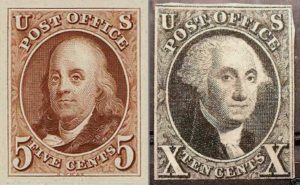
ZIP
Mr. ZIP, who has no first name, appeared in many public service announcements and advertisements urging customers to use their five-digit ZIP Code introduced on July 1, 1963. Within four years of his appearance, eight out of 10 Americans knew who Mr. ZIP was and what he stood for. The character has found new life in recent years a USPS-licensed character and even has YouTube series.
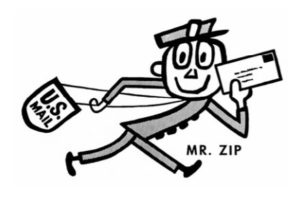
With the introduction of the nine-digit ZIP Code, or ZIP+4, in 1983, Mr. ZIP went into partial retirement. His image still was printed on the selvage of some sheets of stamps, but that practice ended in January 1986. Today, Mr. ZIP is a USPS-licensed character used to expand the Postal Service brand and introduce the organization to new generations of Americans.
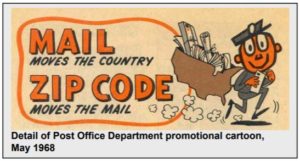
free city delivery
Before 1863, postage paid only for the delivery of mail from Post Office to Post Office. Citizens picked up their mail, although in some cities they could pay an extra two-cent fee for letter delivery or use private delivery firms. An Act of Congress of March 3, 1863, effective July 1, 1863, provided that free city delivery be established at Post Offices where income from local postage was more than sufficient to pay all expenses of the service.
In the late 19th century, free home delivery of mail was introduced — first in cities, then in rural areas — and letter carriers became familiar, trusted visitors to homes and businesses across the country.
Before 1863, postage paid only for the delivery of mail from Post Office to Post Office. Citizens picked up their mail, although in some cities they could pay an extra one- or two-cent fee for letter delivery or use private delivery firms. Among the postal reforms suggested by Postmaster General Montgomery Blair in his 1862 report to the President was free delivery of mail by salaried letter carriers, which he felt would “greatly accelerate deliveries, and promote the public convenience.” He reasoned that if the system of mailing and receiving letters was more convenient, people would use it more often, and pointed to increasing postal revenues in England, which already had adopted free city delivery.
Congress agreed. An Act of Congress of March 3, 1863, effective July 1, 1863, provided that free city delivery be established at Post Offices where income from local postage was more than sufficient to pay all expenses of the service. For the first time, Americans had to put street addresses on their letters.
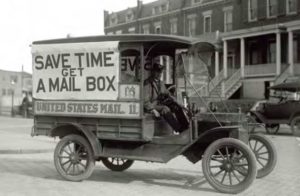
the postal dog
On an autumn day in 1888, a shaggy pup took his first steps toward becoming a postal legend when he crept into the Albany, NY, Post Office. Postal employees allowed him to stay and named him Owney.
At first, Owney stayed close to the Post Office, but he soon began riding mail wagons to the train depot and the railway mail car down to New York City and back to Albany. As Owney traveled farther, his friends at the Albany Post Office feared he might wander too far away to find his way home again, so they purchased a leather collar with a tag reading “Owney, Post Office, Albany, N.Y.” Railway mail clerks recorded Owney’s travels by attaching metal baggage tags to his collar to identify the rail lines he traveled on. He was soon so weighed down by his collection of tags that Postmaster General John Wanamaker presented Owney with a jacket to distribute their weight more evenly.
Owney took to traveling farther and staying away longer, eventually visiting Mexico, Canada, Japan, China, Singapore, Suez, Algiers and the Azores.
One day, while being shown off to an Ohio newspaper reporter, Owney bit the clerk who was handling him. The postmaster had Owney put down on June 11, 1897. Railway mail clerks chipped in money to have a taxidermist preserve Owney’s body, which then was sent to postal headquarters in Washington, DC, for exhibit. In 1911, the Post Office Department entrusted Owney to the Smithsonian Institution. Since 1993, Owney has been on display at the National Postal Museum in Washington, DC. In 2011, Owney was honored on a commemorative U.S. postage stamp.


LINCOLN
On May 7, 1833, 24-year-old Abraham Lincoln was appointed postmaster of New Salem, IL. Lincoln served until the office was closed May 30, 1836.
Two postmasters became U.S. presidents later in their careers — Abraham Lincoln and Harry Truman. Truman held the title and signed papers but immediately turned the position and its pay over to an assistant. Lincoln was the only president who served as a postmaster.
On May 7, 1833, 24-year-old Lincoln was appointed Postmaster of New Salem, IL. Lincoln served until the office was closed May 30, 1836. Postal records show that Lincoln earned $55.70 as postmaster in fiscal year 1835 and $19.48 for one quarter’s work in fiscal year 1837. Besides his pay, Lincoln, as postmaster, could send and receive personal letters free and get one daily newspaper delivered free. Mail arrived once a week. If an addressee did not collect the mail, as was the custom, Lincoln delivered it personally — usually carrying the mail in his hat. Even then, Lincoln was “Honest Abe.”
Reportedly, when the New Salem Post Office was discontinued, Lincoln had a balance of $16 or $18, which he took with him to Springfield, IL. Months later, while his close friend Dr. A. G. Henry was visiting, a Post Office agent called on Lincoln to collect the funds. Henry knew that Lincoln had been in financial straits and feared that he might not have the money. Henry recalled that just as he was about to offer Lincoln a loan, the future president “. . . went over to his trunk at his boarding house, and returned with an old blue sock with a quantity of silver and copper coin tied up in it. Untying the sock, he poured the contents on the table and proceeded to count the coin, which consisted of such silver and copper pieces as the country-people were then in the habit of using in paying postage. On counting it up there was found the exact amount, to a cent, of the draft, and in the identical coin which had been received. He never used, under any circumstances, trust funds.”
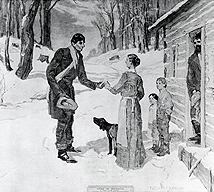
An American History
The United States Postal Service has a storied history, familiar to many. Our history is the history of America. Detailed information about the Postal Service and its history can be found in "The United States Postal Service: An American History" at https://about.usps.com/who/profile/history/.
first postmaster general
The Continental Congress appointed Benjamin Franklin the first postmaster general on July 26, 1775.
center
Located in Maryland, the William F. Bolger Center is a premier leadership development and conference center servicing both Postal Service and external clients. It is the only hotel in the country featuring an on-site Smithsonian Institution exhibit.
The William F. Bolger Center is a Postal Service-owned, state-of-the-art training facility located on 83 beautiful acres in Potomac, MD. It was built in the 1930’s as a Catholic convent by the Sisters of Mercy.
In the 1980’s, it was purchased by the U.S. Postal Service as a training center.
Named for William F. Bolger (March 13, 1923 – August 21, 1989), the 65th Postmaster General of the United States from March 15, 1978 to January 1, 1985.

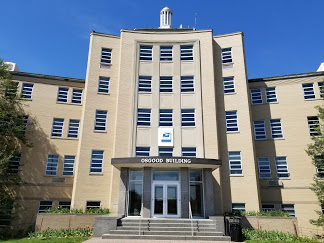
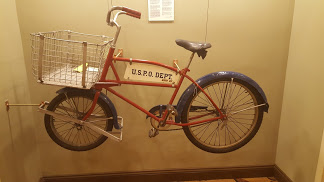

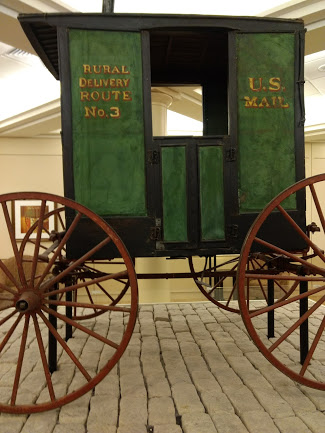

National Postal Museum opens
In 1993, the Smithsonian's National Postal Museum opened. This museum is dedicated to the preservation, study and presentation of postal history and philately.
The Smithsonian’s National Postal Museum offers exhibits tracing the history of the postal system in the United States. It houses millions of postal-related items — mostly stamps, but also postal stationery, greeting cards, covers and letters, mailboxes, postal vehicles, handstamps, metering machines, patent models, uniforms, badges and other objects related to postal history and philately. The museum’s library, with more than 40,000 volumes and manuscripts, is open to the public by appointment. In 2013, the William H. Gross Stamp Gallery — the largest in the world — opened at the museum.
For more information, go to postalmuseum.si.edu.
first Post Office
The first Post Office in the American colonies was established in a Boston tavern in 1639.
and the U.S. Mail
Extra! Extra! American newspapers largely owe their existence to Post Offices. As part of the Post Office Act of 1792, newspapers were permitted to be mailed at extremely low rates. By the start of the 19th century, newspapers made up the bulk of the U.S. Mail.
of USPS
The history of the Postal Service is a large story set on a broad canvas. It is intertwined with the history of America, and it provides a lens from which to observe the evolution of the United States. This story is told beautifully in "The United States Postal Service: An American History" (also known as Pub. 100).
You can find the publication at about.usps.com/publications/pub100.pdf.
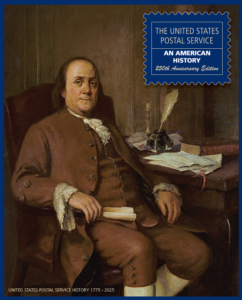
historic buildings
More than 1,400 USPS-owned buildings are listed on the National Register of Historic Places.
Our History is the History of America
Many Postal Service buildings are historical properties. At many Post Office locations, you’ll find impressive works
of art that reflect the stories of our people and our nation.

postmaster general
The Postal Service traces its origin to 1775, when Benjamin Franklin was appointed as the first postmaster general of the United Colonies. His annual salary was $1,000. From 1872 to 1971, the postmaster general was a presidential Cabinet member.
Pony Express
The official name for the Pony Express was the Central Overland California & Pike’s Peak Express Co. Before they were hired, riders had to swear on a Bible not to curse, fight or abuse their animals. The service was in operation only from April 3, 1860, to Oct. 26, 1861. It was never part of the U.S. Postal Service but operated as a contract U.S. Mail route during its final months.
That’s no pony, that’s a big horse
The official name for the “Pony Express” was the Central Overland California & Pike’s Peak Express Co. Before they were hired, riders had to swear on a Bible not to curse, fight or abuse their animals. The service was in operation only from April 3, 1860, to Oct. 26, 1861. It operated as a U.S. Mail route during its final 4 months.
On April 3, 1860, the first Pony Express mail, traveling by horse and rider relay teams, simultaneously leaves St. Joseph, MO, and Sacramento, CA. Ten days later, on April 13, the westbound rider and mail packet completed the 1,800-mile journey and arrived in Sacramento, beating the eastbound packet’s arrival in St. Joseph by two days and setting a new standard for speedy mail delivery. The Pony Express was by far the most effective way to communicate cross-country —until the telegraph came along. After 18 months in operation, the system was shuttered on October 26, 1861, and the last remaining mail was delivered.
The Pony Express National Historic Trail was designated to preserve the story and routes of this nationally significant trail and to support the associated sites that preserve its history. Learn more at https://www.nps.gov/poex
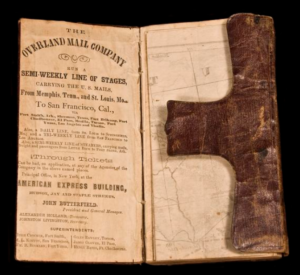
The Postal Service is always striving to increase the impact, excitement and value of mail. We’ve always embraced new technologies and innovation. We’re firmly focused on improving the mailing experience.
People, machines, vehicles, technology — it’s an impressive feat to get that card from grandma or that package from your favorite online store to your doorstep.
Matrix Regional Sorter
The largest piece of automated processing equipment, the Matrix Regional Sorter, can sort up to 52,600 packages an hour.
Informed Delivery emails
In fiscal year 2024, USPS sent out more than 12.5 billion Informed Delivery Daily Digest email notifications, featuring more than 33 billion mailpieces and 10 billion packages.
driven
The Postal Service uses data not only to ensure its operations run smoothly, but also to help businesses make better use of the mail. Its mission is to provide the right information to the right people in real time using advanced technology.
petabytes of storage
The Postal Service has 188 petabytes of storage capacity — equivalent to 2.9 million smartphones with 64GB of space.
external email messages
In 2024, the Postal Service email system delivered 1.6 billion external email messages per month, with 70 percent of the volume comprising Informed Delivery Daily Digest emails.
miles driven in 2024
To move mail using surface transportation, the Postal Service drove more than 1.9 billion miles in 2024 — more than 22.6 million trips.
BROKER
The Lable Broker service solves the ever-increasing problem of online customers not being able to print shipping labels.
With Label Broker, customers can get a shipping label on their mobile device, in the form of a matrix barcode, directly from the merchant. The customer uses the code to print an outbound or return shipping label at a Post Office or on a printer connected to usps.com. Label Broker is also the foundational technology that has enabled the USPS Operation Santa program to expand and evolve in a digital format.
For more information, go to usps.com/business/label-broker.htm.
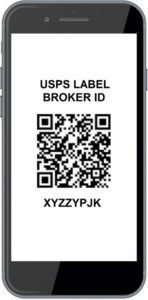
USPS launches its website
The Postal Service launched its first public website, usps.gov, in 1994. The site became usps.com in 2000.
Visitors to usps.gov are redirected to the official Postal Service website, usps.com.
delivery unit sorter
The Automated Delivery Unit Sorter sorts packages and bundles of mail at a rate of 3,400 pieces per hour with a sort accuracy of 99.95 percent.
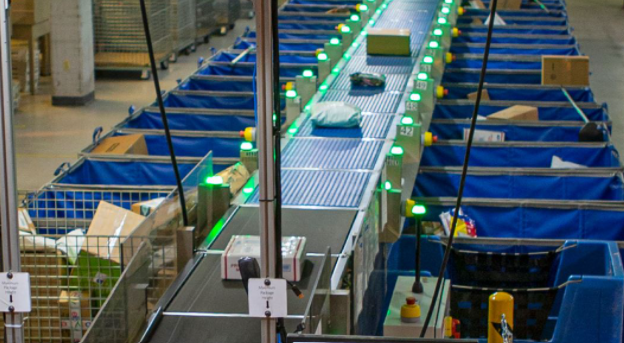
GREETINGS
Informed Greetings blends the traditional “mail moment” with a modern digital experience by integrating a personalized digital message into the recipient’s USPS Informed Delivery email when they receive a physical greeting card.
Customers can also select artwork that complements their card from hundreds of designs in six different categories.

Vehicle Service Operations
Postal Vehicle Service (PVS) operations include more than 12,000 uniformed motor vehicle and tractor-trailer operators. The PVS fleet includes 98 sprinter vans, 2,202 cargo vans, 2,364 tractors and nearly 7,351 trailers. Commuting within a 170-mile radius of their facility, PVS drivers traveled more than 184 million miles last year.
seamless mailpieces
The Seamless Acceptance program automates the payment verification of commercial mailings by leveraging electronic documentation, Intelligent Mail barcodes and information collected from both handheld sampling devices and mail processing equipment scans. In 2024, the Seamless Acceptance program accepted 77.5 billion mailpieces from 2,734 mailers.
eInduction mailers
The eInduction process simplifies mail induction by using electronic documentation, Intelligent Mail container barcodes and handheld scanner technologies to verify the payment and preparation of commercial mail containers. In 2024, 1,102 mailers took advantage of eInduction.
in EPS revenue
The Enterprise Payment System (EPS). EPS allows customers to pay for and manage their use of Postal Service products and services online, using an integrated single payment account. In 2024, EPS collected $46.6 billion in revenue, which is a 5.9 percent increase over 2023.
in eVS revenue
The Electronic Verification System (eVS) allows high-volume package mailers and package consolidators to document and pay for postage, including extra service fees, using electronic manifest files. In 2024, eVS processed 4.7 billion packages and collected $16.2 billion in revenue.
in short-paid revenue
The Automated Package Verification program automates the detection and collection of postage due for mailpieces with insufficient postage using automated package processing equipment. The APV program collected $140.9 million in short-paid revenue in 2024.
at work
The daily operations performed by the Postal Service depend on an astonishing network of people and technologies that collect, transport, process and deliver the nation’s mail.
mail trays
Tray sorting machines sort more than 10 million trays per day through conveyor systems.
of processing equipment
The Postal Service operates more than 9,000 pieces of automated equipment that processes and sorts nearly half the world’s mail.
Mobile Delivery Devices
Mobile Delivery Devices (MDDs) provide real-time scanning for daily delivery operations. There are more than 285,000 MDDs in use nationwide.
USPS and mailers
Postal customer councils are Postal Service-affiliated networks connect business mailers with local Post Office leadership to develop more effective and profitable mailings through training and information sharing. Since the 1960s, these councils have been the go-to local resource for helping mailers learn, innovate and build their business. More information can be found at postalpro.usps.com/pcc.
Find more information at postalpro.usps.com/pcc.
providing technical advice
The Postmaster General’s Mailers Technical Advisory Committee is a venue for the Postal Service to share technical information with mailers and to receive their advice and recommendations on matters concerning mail-related products and services. More information can be found at postalpro.usps.com/mtac.
stamps postmarked per hour
The Advanced Facer Canceller System positions letter mail and postmarks stamps at 36,000 pieces per hour.
miles of conveyors
The Postal Service is one of the largest material-handling systems in the world for moving mail. There are more than 200 miles of conveyors within postal facilities.
character recognition
The Postal Service is the world leader in optical character recognition technology, with machines reading nearly 98 percent of all hand-addressed letters and 99.5 percent of machine-printed mail.
Intelligent Mail
A unique Intelligent Mail barcode identifies individual pieces of mail, trays, sacks and containers to track them through the postal processing system from induction to delivery.
more than $5B in revenue
Every Door Direct Mail began in 2011 and is designed to help business mailers direct their Marketing Mail pieces to customers in a select neighborhood, city or ZIP Code. Since 2011, more than 33 billion pieces of Every Door Direct Mail pieces have been sent, resulting in $5 billion in revenue. Nearly 3 billion pieces were sent in 2024, totaling $588 million in revenue.
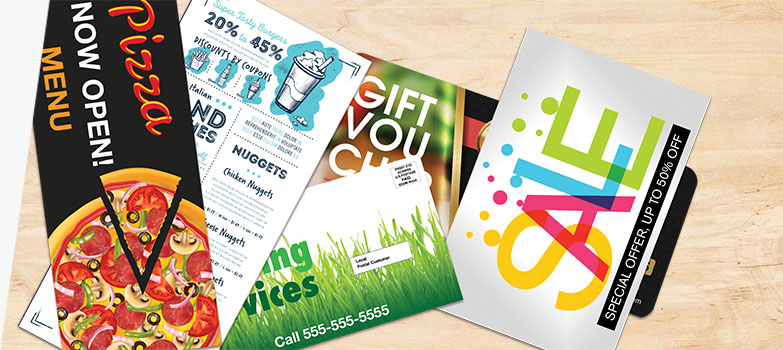 The USPS Printer Directory provides customers free access to local print, design and mail preparation services for Every Door Direct Mail and other direct mail products through a searchable database and mapping program. Hundreds of listings populate the directory that serves small and medium-sized businesses nationwide.
The USPS Printer Directory provides customers free access to local print, design and mail preparation services for Every Door Direct Mail and other direct mail products through a searchable database and mapping program. Hundreds of listings populate the directory that serves small and medium-sized businesses nationwide.
Informed Delivery customers
With Informed Delivery, you can digitally preview your incoming mail and manage your packages from a computer, tablet or mobile device. More than 67 million customers have enrolled since it was launched in 2017.
Informed Delivery provides eligible residential customers with a digital preview of their household’s incoming mail scheduled to arrive soon. Users can view greyscale images of the exterior, address side of incoming letter-sized mail pieces (not the inside contents) via email or an online dashboard.
Informed Delivery also allows customers to track packages delivered by the Postal Service and see when they will be delivered.
For more information and to sign up, go to usps.com/informeddelivery.
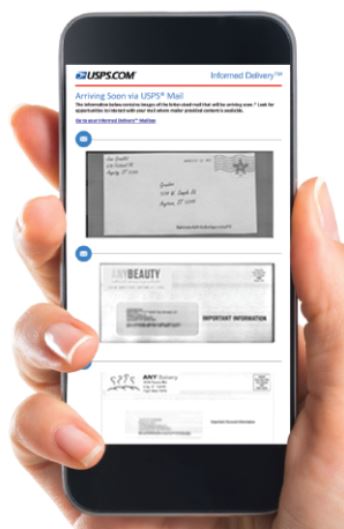
handheld scanners
The Postal Service communications network supports and maintains 157,681 workstations, 31,252 server computers, 52,689 printers, 31,092 smartphones, 838 tablets and more than 430,000 handheld scanners.
robotics systems
The Postal Service has the largest gantry robotic fleet in the world with 165 robotics systems moving 300,000 mail trays per day.
We protect you and your mail.
The U.S. Postal Inspection Service is the federal law enforcement, crime prevention and security arm of the U.S. Postal Service. Established Aug. 7, 1775, the Inspection Service is one of the nation’s oldest federal law enforcement agencies.
Postal Crimes
Report postal-related crimes to the Postal Inspection Service at uspis.gov/report or by calling 1-877-876-2455.
illegal narcotics seized
In fiscal year 2024, the Inspection Service seized 36,454 kilograms of illegal narcotics.
SAFE DELIVERY
The Inspection Service and USPS launched Project Safe Delivery in 2023 to protect postal employees and the security of the nation’s mail and packages.
The Inspection Service and USPS launched Project Safe Delivery in 2023 as a direct response to an increase in letter carrier robberies and associated mail theft. The joint initiative aims to protect postal employees and the mailstream, prevent incidents through education and awareness and enforce the laws that protect our nation’s mail. More information is available at uspis.gov/psd.
narcotics arrests
In 2024, the Inspection Service reported 2,038 arrests related to illegal narcotics cases.
Keeping America’s postal system secure.
In 2024, the Postal Inspection Service:
the mail from illegal drugs
The Postal Inspection Service is committed to using the most advanced technology to stop fentanyl traffickers. Postal inspectors use data, forensics and citizens’ tips to protect Americans and apprehend opioid dealers who send illegal drugs through the mail.
Defending the mail from illegal drugs
The Postal Inspection Service is committed to using the most advanced technology to stop fentanyl traffickers. Postal inspectors use data, forensics and citizens’ tips to protect Americans and apprehend opioid dealers who send illegal drugs through the mail.
In 2024, postal inspectors seized 36,454 kilograms of illegal narcotics and confiscated over $13 million in illicit proceeds.
INSPECTION SERVICE
Defending the frontier. Enforcing the law. Established Aug. 7, 1775. The U.S. Postal Inspection Service enforces federal laws, prevents crimes, and keeps customers, employees and the mail safe. It’s one of the oldest law enforcement agencies in the nation. Postal inspectors remain on the heels of the criminals — targeting theft, disrupting drug traffickers, warning about fraud scams and more.
It’s one of the oldest law enforcement agencies in the nation. Postal Inspectors remain on the heels of the criminals — targeting theft, disrupting drug traffickers, warning about fraud scams and more.
The Postal Inspection Service does this with approximately 2,300 employees — including nearly 1,250 postal inspectors, roughly 450 uniformed postal police officers and 600 professional, technical and administrative support personnel — all working to ensure America’s confidence in the U.S. Mail.
American postal inspector
The first known African American postal inspector was Isaac Myers in Baltimore in 1870.
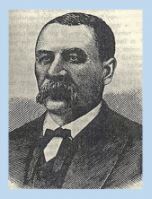
Isaac Myers served as a postal inspector from 1870 until 1879. During his employment he helped solve a number of notorious cases.
Protect Veterans
In 2024, the Inspection Service continued its partnership with AARP through Operation Protect Veterans to raise awareness of scams that target military veterans.
Learn more about Operation Protect Veterans at uspis.gov/veterans.
assets seized
In 2024, the Inspection Service seized 5,011 assets worth more than $54 million.
first female inspectors
In 1971, the Postal Inspection Service became one of the first federal law enforcement organizations to hire female agents.
items examined
In 2024, forensic scientists and specialists in the Postal Inspection Service’s Forensic Laboratory Services examined more than 1 million items, including 378 terabytes of data. Inspectors identified 2,262 suspects based on the evidence gathered by the lab.
winning TV show
The Inspection Service uses various media platforms to educate the American public about scams and how to avoid them. A weekly TV series, "The Inspectors," was based on real-life Postal Inspection Service cases. 104 episodes of the Emmy Award-winning scripted drama ran for four seasons on network television, reaching more than 200 million viewers.
and security of U.S. Mail
The Postal Inspection Service works aggressively and takes all practicable measures to ensure the sanctity and security of the U.S. Mail.
suspicious mail incidents
Postal inspectors responded to and investigated approximately 1,700 suspicious mail incidents in 2024.
in recovered equipment
In 2024, the Inspection Service recovered approximately $750,000 in misappropriated or stolen mail transport equipment.
Inspection Service arrests
In 2024, the Inspection Service made 4,754 arrests and secured 4,228 convictions related primarily to crimes involving mail theft, assaults and robberies of employees, mail fraud and prohibited mailings.
Discover fun and interesting geographic facts about the U.S. Postal Service!
LINCOLN
On May 7, 1833, 24-year-old Abraham Lincoln was appointed postmaster of New Salem, IL. Lincoln served until the office was closed May 30, 1836.
Two postmasters became U.S. presidents later in their careers — Abraham Lincoln and Harry Truman. Truman held the title and signed papers but immediately turned the position and its pay over to an assistant. Lincoln was the only president who served as a postmaster.
On May 7, 1833, 24-year-old Lincoln was appointed Postmaster of New Salem, IL. Lincoln served until the office was closed May 30, 1836. Postal records show that Lincoln earned $55.70 as postmaster in fiscal year 1835 and $19.48 for one quarter’s work in fiscal year 1837. Besides his pay, Lincoln, as postmaster, could send and receive personal letters free and get one daily newspaper delivered free. Mail arrived once a week. If an addressee did not collect the mail, as was the custom, Lincoln delivered it personally — usually carrying the mail in his hat. Even then, Lincoln was “Honest Abe.”
Reportedly, when the New Salem Post Office was discontinued, Lincoln had a balance of $16 or $18, which he took with him to Springfield, IL. Months later, while his close friend Dr. A. G. Henry was visiting, a Post Office agent called on Lincoln to collect the funds. Henry knew that Lincoln had been in financial straits and feared that he might not have the money. Henry recalled that just as he was about to offer Lincoln a loan, the future president “. . . went over to his trunk at his boarding house, and returned with an old blue sock with a quantity of silver and copper coin tied up in it. Untying the sock, he poured the contents on the table and proceeded to count the coin, which consisted of such silver and copper pieces as the country-people were then in the habit of using in paying postage. On counting it up there was found the exact amount, to a cent, of the draft, and in the identical coin which had been received. He never used, under any circumstances, trust funds.”

in caves
No troglodytes here! The Stamp Fulfillment Services facility, located in Kansas City, MO, is housed in a limestone cave 150 feet beneath the ground. It is the Postal Service’s only facility located underground.
The consistent, year-round temperatures and humidity levels in the cave allow the stamps to be maintained in mint-quality condition. The underground facility also keeps the inventory and employees safe from snow, flooding, winds and tornadic activity common in the Midwest.
Ahoy!
The JW Westcott is a 45-foot contract mail boat out of Detroit that delivers mail to passing ships on the Detroit River. The JW Westcott has its own ZIP Code — 48222.

This is the J.W. Westcott II approaching a Canadian freighter on the Detroit River
Headquarters
The U.S. Postal Service Headquarters building is located in Washington, DC, just a few blocks south of the National Mall.
Postal Service Headquarters, 1973 — Present
Vlastimil Koubek designed the present Postal Service Headquarters building, which is located in Washington, DC, just a few blocks south of the National Mall.
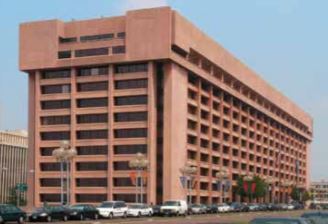
Post Office Department Headquarters, 1899–1934
This granite building on Pennsylvania Avenue, not far from the White House, was the last to simultaneously house both USPS Headquarters and the Washington, DC, Post Office. Horse-drawn wagons brought mail to the building in its early years. By the time the headquarters moved to a larger building, almost all mail was carried by motor vehicles.
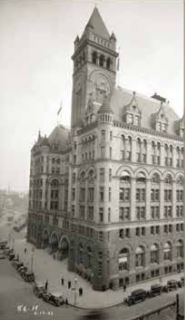
in continental U.S.
The largest ZIP Code in the continental U.S. is 99734, Prudhoe Bay, AK, which measures 30,683 square miles.
Twenty-four of the top 25 largest ZIP Codes in the country are located in Alaska — ranging from the largest, 99734, at more than 30,000 square miles to 99741 at 7,600 square miles. The 14th spot goes to 89049 in Nevada.
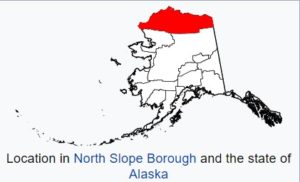
in contiguous U.S.
The largest ZIP Code in the contiguous U.S. is 89049, Tonopah, NV, at 10,821 square miles.
Twenty-four of the top 25 largest ZIP Codes in the country are located in Alaska – ranging from the largest, 99734, at more than 30,000 square miles to 99741 at 7,600 square miles. The 14th spot goes to Nevada, 89049.
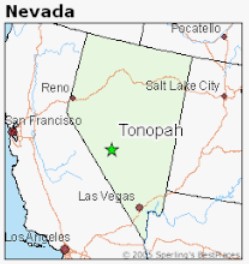
delivery
The most unusual mode of delivery used by the Postal Service is the mule train. Since the 1930s, mules have been carrying mail and goods to the Havasupai people inside the Grand Canyon.
Got mules? The most unusual mode of delivery
used by the Postal Service is the mule train. Since the
1930s, mules have been carrying mail and goods to the
Havasupai people inside the Grand Canyon.
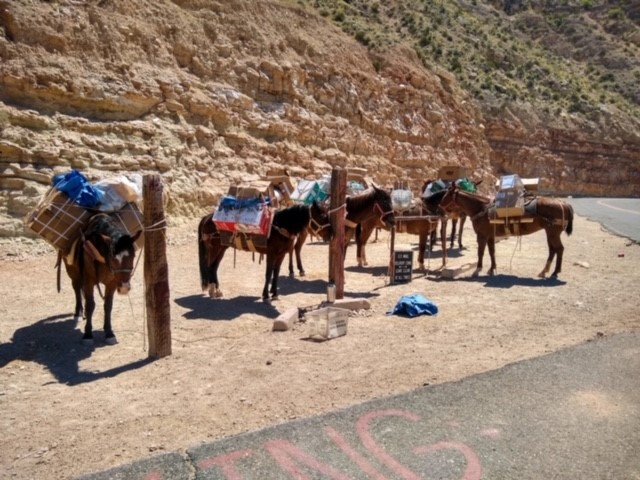
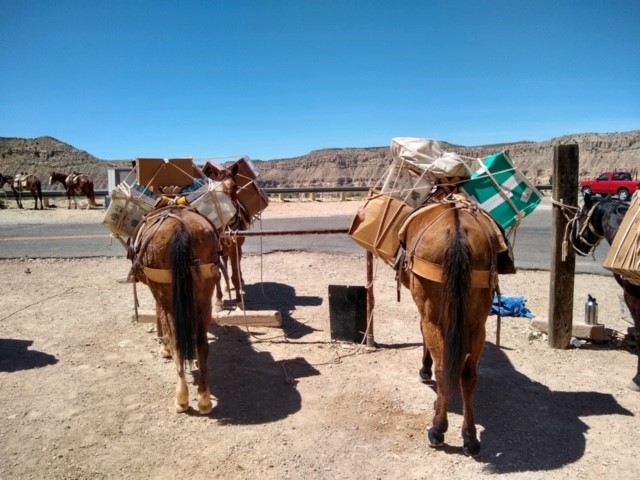
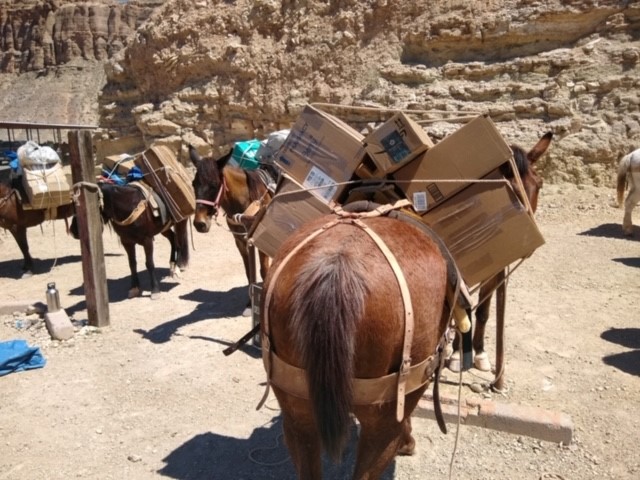
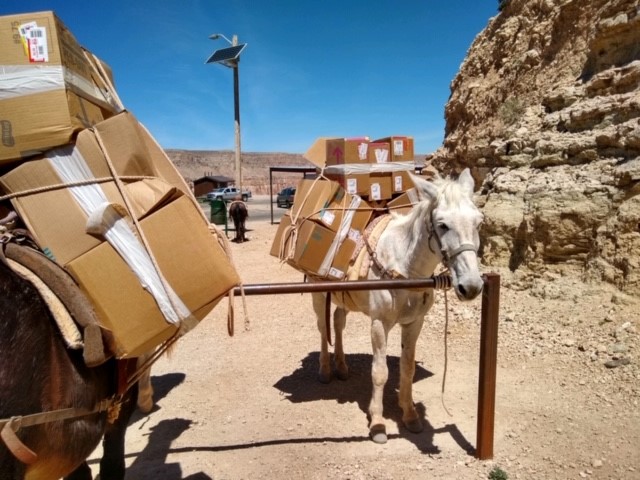
city names
Ben, this one’s for you. There are 32 cities named “Franklin,” making it the most common city name. “Arlington,” “Clinton,” Springfield” and “Washington” are tied for second place at 29 locations each, while “Fairfield” and “Madison” tie for seventh place with 28 locations apiece. The most common Post Office name is “Clinton,” with 26 locations, followed by “Madison” at second (25) while “Franklin” and “Washington” are tied for third (24).
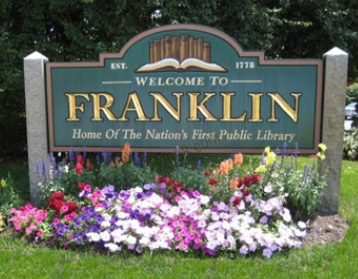
Main Street
The longest Main Street in the country is located in Island Park, ID, and is 33 miles long.
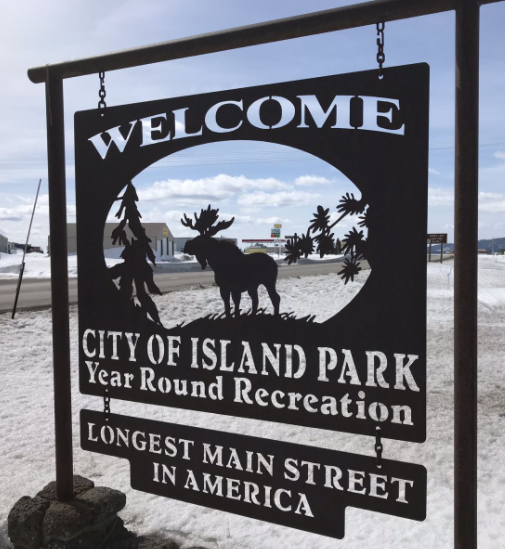
Main streets
The most common street name in the country is “Main” — 21,688 of them — followed by “Second” with 18,322, “Third” with 16,951 and “First” with 16,197.
Post Office
Our Post Office in Utqiagvik, North Slope of Alaska — formerly Barrow (99723) — experiences the coldest temperatures.
delivery route
The shortest delivery route is rural route 012 in Woodinville, WA (98072). On this route, the carrier travels 2.45 miles and delivers to 1,147 boxes.
delivery route
The longest delivery route is rural route 001 in Sidney, MT (59270) — 195.2 miles daily, delivering to 305 boxes.
easiest to remember
The easiest to remember ZIP Code is 12345, a unique ZIP Code for General Electric in Schenectady, NY.
ZIP Code
The highest numbered ZIP Code is 99950 in Ketchikan, AK.
ZIP Code number
The lowest ZIP Code number is 00501, unique for the Internal Revenue Service in Holtsville, NY.
Who's there?
The Postal Service’s only dock-to-dock delivery route is on the Magnolia River in Alabama. A 15-foot contract mail boat delivers to 176 dock-side mailboxes on a 31-mile stretch of the river.
most needing a bridge
The Post Office in most need of a bridge is in Point Roberts, WA. It can be reached by car only by driving through British Columbia, Canada. Only a boat or float plane can travel directly there.
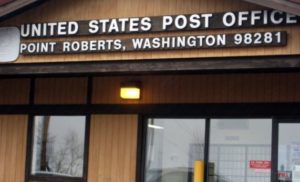
Post Office
The second oldest Post Office location in operations is in Castine, ME, and opened in 1833.
Post Office
The Hinsdale, NH, Post Office (03451) has been located in the same building since 1816.
retail space
The largest U.S. Postal Service retail space is the James A. Farley Post Office in New York, NY (10001), at 33,100 square feet.
POST OFFICE
The smallest Post Office is located in Ochopee, FL (34141) and is 61.3 square feet. The building used to be a storage facility for irrigation pipes of an adjacent tomato farm. It was converted into a Post Office in 1953, after a fire that destroyed a previous Post Office and general store.
There is a sign beside the office that reads:
OCHOPEE POST OFFICE
Considered to be the smallest post office in the United States, this building was formerly an irrigation pipe shed belonging to the J.T. Gaunt Company tomato farm. It was hurriedly pressed into service by postmaster Sidney Brown after a disastrous night fire in 1953 burned Ochopee’s general store and post office. The present structure has been in continuous use ever since — as both a post office and ticket station for Trailway’s bus lines — and still services residents in a three-county area, including deliveries to Seminole and Miccosukee Indians living in the region. Daily business often includes requests from tourists and stamp collectors the world over for the famed Ochopee postmark. The property was acquired by the Wooten Family in 1992.
— Collier County Board of County Commissioners
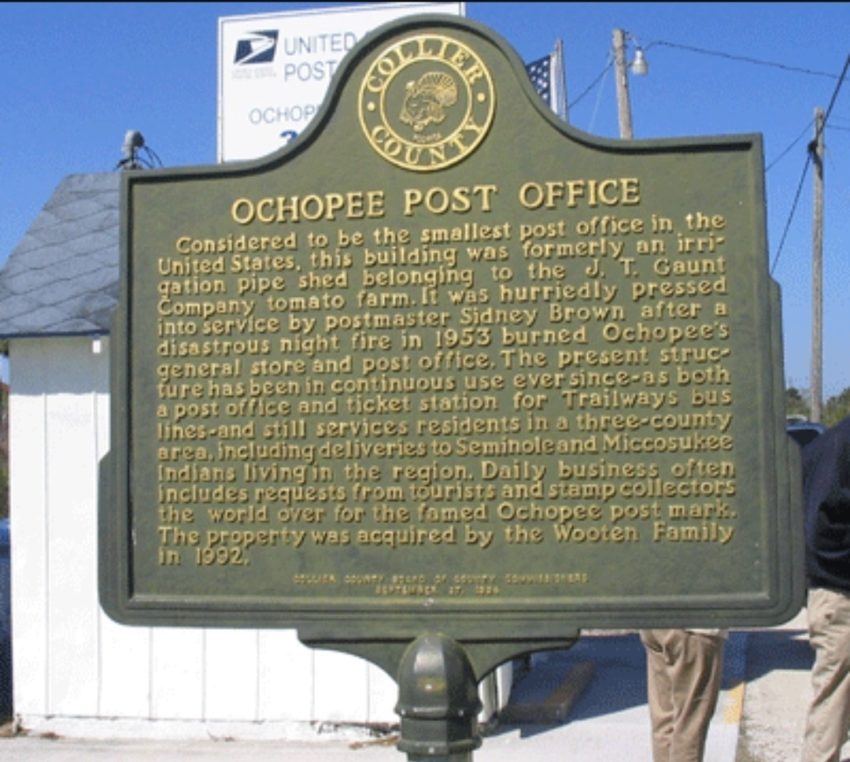
in the middle
The most centered Post Office within the 48 contiguous states is located in Lebanon, KS.
Post Office of them all
The most centered Post Office within all 50 states is located in Belle Fourche, SD.
Utqiagvik, AK
The northernmost Post Office location within the 50 states is in Utqiagvik, AK (formerly Barrow).
Post Office within 48 states
The northernmost Post Office location within the 48 contiguous states is in Angle Inlet, MN.
within the 50 states
The southernmost Post Office location within the 50 states is located in Naalehu, HI.
within 48 states
The southernmost Post Office location within the 48 contiguous states is located in Key West, FL.
within the 50 states
The easternmost Post Office location in the 50 states is in Lubec, ME.
within the 50 states
The westernmost Post Office location in the 50 states is in Gambell, AK.
in the 48 contiguous states
The westernmost Post Office location in the 48 contiguous states is in La Push, WA.
U.S. Post Office
The wettest Post Office is the Kapaa Post Office in Hawaii near Mt. Waialeale.
U.S. Post Office
The lowest U.S. Post Office is located in Death Valley, CA (92328), at 282 feet below sea level. This is also the driest and hottest Post Office location.
U.S. Post Office
The highest Post Office in the United States is located in Alma, CO (80420), at 10,578 feet above sea level.
Our priority is and always will be delivering great service that’s affordable and dependable. When you ship with Priority Mail, you get free shipping supplies, flat-rate options, insurance included, USPS Tracking and easy online tools. It all adds up to one of the best values in the shipping business!
International Mail revenue
International Mail is a $1.41 billion business within the Postal Service.
bargain
The price of a First-Class postage stamp is a global bargain.
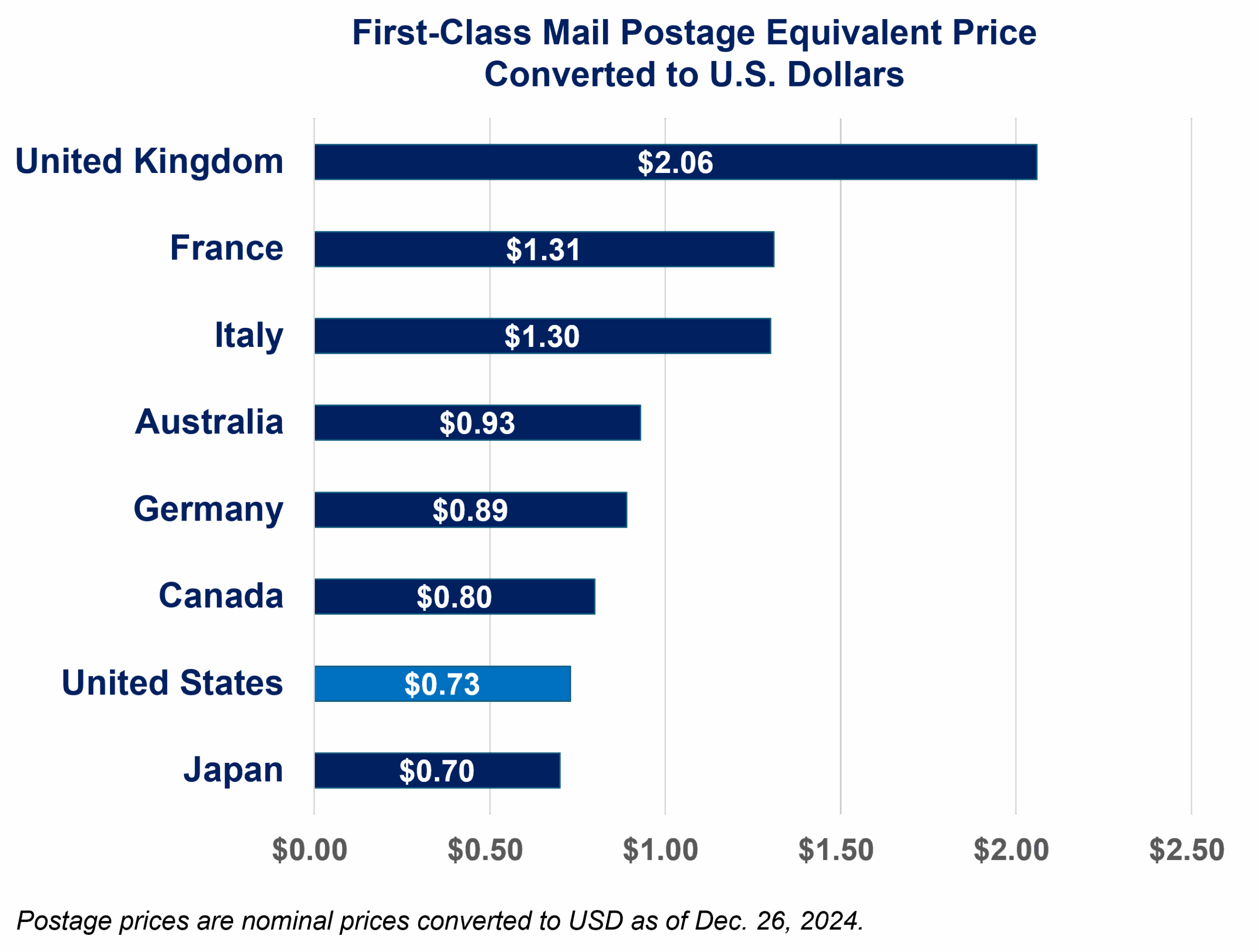
generation vehicles
In December 2022, USPS announced plans to acquire 106,000 new vehicles, including at least 66,000 battery electric delivery vehicles. This includes 21,000 commercial off-the-shelf battery electric vehicles and 45,000 battery electric Next Generation Delivery Vehicles (NGDV). The NGDVs provide better visibility, ergonomic seating, air conditioning, safety improvements and user-friendly operations.
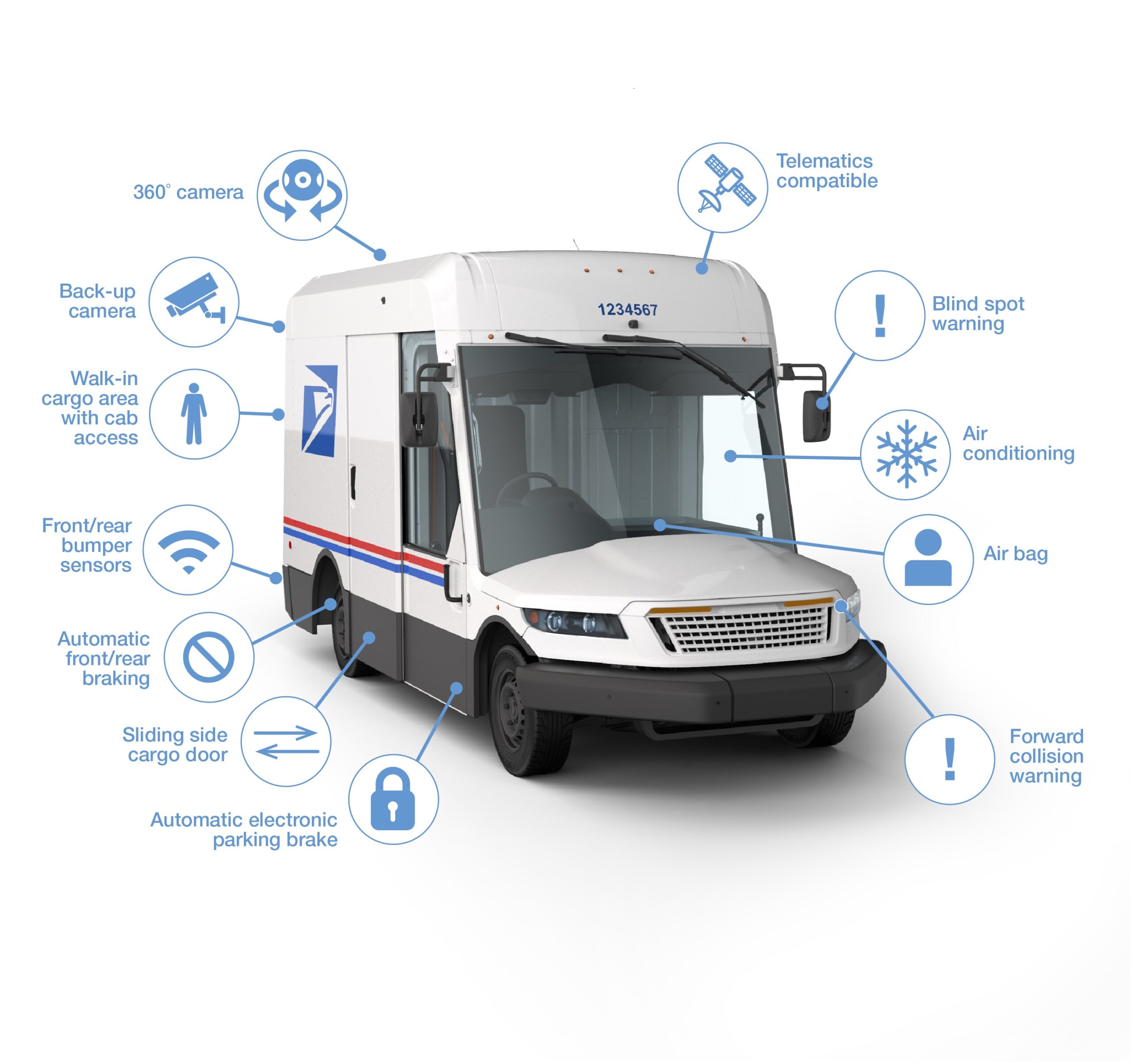
in a shipping container
The Power, MT (59468) Post Office, built in 2019, is the first Post Office built using a shipping container.
Postal Union
The Postal Service is a member of the Universal Postal Union (UPU), a United Nations' organization.
The Postal Service is a member of the Universal Postal Union (UPU), a United Nations’ organization.
Post Corporation
The Postal Service is one of 26 members of the International Post Corporation (IPC). The IPC is a cooperative association of posts in North America, Europe and Asia Pacific.
The Postal Service is one of 26 members of the International Post Corporation (IPC). The IPC is a cooperative association of posts in North America, Europe and Asia Pacific.
Post Group
The Postal Service is one of 10 members of the Kahala Post Group (KPG).
The Postal Service is one of 11 members of the Kahala Posts Group (KPG).
Service Cooperative
The Postal Service is a member of the Express Mail Service (EMS) Cooperative. The EMS Cooperative was created by the UPU in 1999 and consists of 176 postal operators. It allows access to more than 180-member countries to provide EMS — the UPU’s fastest cross-border international postal product.
The Postal Service is a member of the Express Mail Service (EMS) Cooperative.
Group
The Postal Service is one of 36 members of the .POST Group. The UPU’s .POST Group, created in 2013, is a trusted internet domain, established exclusively for the global postal sector and sponsored by the UPU.
The mission of the .POST Group is to support posts in providing their customers with reliable and secure web services.
GLOBALLY
The Postal Service works closely with posts around the world to improve service and increase its annual share of the international shipping market.
usps.com destinations
The top five destinations on usps.com in 2024, in order of popularity, were USPS Tracking, Informed Delivery, ZIP Code Lookup, USPS FAQs and The Postal Store.
Top five pages on usps.com, in order of popularity, in 2024:
Sunday best
Our Sunday best. The Postal Service operates Sunday package delivery to meet the shipping needs of customers.
YOU!
Priority: YOU! The Postal Service priority is and always will be serving you. With free shipping supplies, flat-rate options, $100 worth of free insurance for most shipments, improved tracking and easy online tools, Priority Mail shipping offers one of the best values in the shipping business.
Here’s more you should know:
Priority Mail Express offers you overnight delivery to many U.S. locations with up to $100 of insurance coverage included with most shipments.
With Priority Mail Flat Rate boxes and envelopes, there’s no need to weigh or calculate postage of packages up to 70 pounds.
Priority Mail and Priority Mail Express boxes, envelopes and labels, as well as customs pouches for international mailing products, are available at no charge. They can be ordered at usps.com and delivered to your door or picked up at a local Post Office.
Priority Mail is the environmental choice — boxes are recyclable!
Click-N-Ship labels
The Click-N-Ship app allows customers to print shipping labels with postage for Priority Mail, Priority Mail Express, Priority Mail Next Day, Priority Mail International, Priority Mail Express International and First-Class Package International Service. Click-N-Ship customers created more than 32 million labels, which generated nearly $385 million in sales in 2024.
visits to USPS mobile site
The USPS Mobile app was downloaded more than 6.7 million times from the Apple App and Google Play stores. In 2024, there were more than 3.7 billion visits to usps.com from a mobile device.
The Post Office on your phone. The Postal Service app — USPS Mobile — is available on Apple and Android platforms. Some of the most popular functions currently available on usps.com — USPS Tracking, Informed Delivery, Post Office Locator, ZIP Code Lookup, The Postal Store, calculating postage, holding mail, requesting Package Pickup and ordering shipping supplies — are now available on most smartphones.
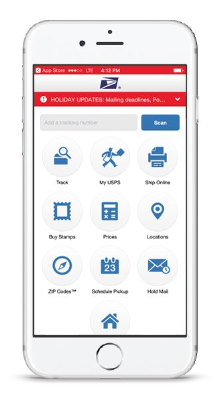
USPS mobile app downloads
There's a Post Office on your phone. In 2024, the Postal Service app — USPS Mobile — was downloaded more than 6.7 million times from the Apple App Store and Google Play Store.
The free usps.com iPhone app was launched in 2009.
Some of the most popular functions currently available on usps.com — Informed Delivery, USPS Tracking, Post Office Locator, ZIP Code Lookup, calculating postage, holding mail, requesting Package Pickup and ordering shipping supplies — are now available on most smartphones.
In 2024, there were more than 3.7 billion visits to usps.com from a mobile device.

point-of-sale systems
There are 48,000 retail point-of-sale systems installed in 20,400 locations that provide services at windows, military sites, business partners and self-service kiosk systems.
in SSK revenue
In 2024, the Postal Service received $243.6 million in revenue from 2,800 postal self-service kiosks (SSK).
if a private sector company
If it were a private sector company, the Postal Service would rank 52nd in the 2024 Fortune 500.
annual industry conference
National Postal Forum (NPF). The annual mailing industry conference provides educational and networking opportunities for thousands of business customers. Attendees learn about the latest mail trends and innovations through more than 100 workshops and seminars. More information can be found at npf.org.
More information can be found at npf.org.

Care Kit
The Postal Service offers a Military Care Kit to ship directly to Army/Air Post Office, Fleet Post Office and Diplomatic Post Office locations. The kit contains Priority Mail Flat Rate Boxes, address labels, tape and customs forms. It can be ordered at no charge at usps.com/shop or by calling 800-610- 8734.
The Military Care Kit — and the special pricing offered for APO, FPO and DPO destinations — makes it easy to send care packages to loved ones stationed overseas.

mailpieces
With picture permit indicia, commercial mailers can modify the permit imprint indicia on First-Class Mail and Marketing Mail with a corporate logo, brand image or trademark to raise their brand awareness and market products and services.
total retail offices
The Postal Service had 33,780 retail offices across the United States in 2024. This number includes contract locations. The Postal Service has 31,063 postal-managed retail offices.
Post Offices
There are 31,063 Postal Service-managed retail offices in the United States. Including contract offices, there are 33,780 offices.
customer visits
The Postal Service had 655.2 million customer visits in 2024.
retail revenue
In 2024, Postal Service retail revenue totaled $11.2 billion.
alternate access revenue
In 2024, the Postal Service received $2.1 billion in revenue from alternate access locations. Alternate access refers to locations such as ATMs, grocery stores, convenience stores, etc., where postage and postage-related items can be purchased.
percent
In 2024, 18.1 percent of Postal Service retail revenue came from alternate access locations. Alternate access locations refer to ATMs, grocery and convenience stores, etc., where postage and postage-related items can be purchased.
money orders
In 2024, the Postal Service issued 58.5 million money orders, which equates to roughly 160,274 money orders each day.
During 2023, the Postal Service issued 58.5 million money orders.
in online sales
In 2024, stamp and retail sales at The Postal Store, the official online Post Office, totaled $419 million.
billion visits
usps.com is one of the most frequently visited government sites with 4.7 billion visits in 2024 — averaging more than 12.6 million visitors each day.
package pickup
With Package Pickup, you can go online to request Priority Mail Express and Priority Mail packages be picked up at your home or offices as part of your mail carrier’s regular route — for free.
in online sales
In 2024, stamp and retail sales at The Postal Store, the official online Post Office, totaled $419 million.
Just One Day in the Life of the U.S. Postal Service.
Each day, the Postal Service picks up, processes and delivers millions of letters and packages. No single operation in the world comes close to this level of connectivity for so many households and businesses.
in the Postal Service
Each day the Postal Service picks up, processes and delivers millions of letters and packages. No single operation in the world comes close to this level of connectivity for so many households and businesses.
pounds of mail fly each day
The Postal Service used 150 domestic airports to fly 3.7 million pounds of mail each day in 2024.
mailpieces processed daily
The Postal Service processed and delivered an average of 371.3 million mailpieces daily in 2024.
371.3 million — average number of mailpieces processed and delivered each day
15.5 million — average number of mailpieces processed each hour
257,813 — average number of mailpieces processed each minute
4,297 — average number of mailpieces processed each second
mailpieces per minute
The Postal Service processed an average of 257,813 pieces of mail each minute in 2024.
371.3 million — average number of mailpieces processed and delivered each day
15.5 million — average number of mailpieces processed each hour
257,813 — average number of mailpieces processed each minute
4,297 — average number of mailpieces processed each second
mailpieces per second
On average, the Postal Service processed 4,297 pieces of mail each second in 2024.
371.3 million — average number of mailpieces processed and delivered each day
15.5 million — average number of mailpieces processed each hour
257,813 — average number of mailpieces processed each minute
4,297 — average number of mailpieces processed each second
packages processed daily
The Postal Service processed and delivered an average of 23.9 million packages a day in 2024.
USPS fleet of feet
There are 6,450 carriers who deliver mail entirely on foot. These carriers are our fleet of feet.
address changes daily
On average, the Postal Service processed 27,201 address changes each day of 2024.
people visit usps.com daily
On average, 12 million people visit usps.com each day.
addresses added daily
The Postal Service added an average of 6,604 addresses to its delivery network every day in 2024.
pieces of First-Class Mail
On average, the Postal Service processed and delivered 146.2 million pieces of First-Class Mail each day in 2024.
mailpieces each hour
On average, the Postal Service processed 15.5 million mailpieces each hour in 2024.
371.3 million — average number of mailpieces processed and delivered each day
15.5 million — average number of mailpieces processed each hour
257,813 — average number of mailpieces processed each minute
4,297 — average number of mailpieces processed each second
every two weeks
In 2024, the Postal Service paid $2.1 billion in salaries and benefits every two weeks.
million in revenue daily
The Postal Service receives, on average, $262.5 million in revenue each day.
For some, the Postal Service has served as an interim stop on the way to greater fame. Most people know that Benjamin Franklin and Abraham Lincoln worked for the Postal Service, but did you know that Morgan Freeman and Steve Carrell did, too? For a few — such as Fred
Lindstrom and Harry Hooper — fame preceded their postal careers.
See the list of famous names for yourself at about.usps.com/who/profile/history/personnel.htm.
hiring
The Postal Service regularly hires for full-time, part-time and seasonal employment. Information about current position openings is available at about.usps.com/careers/.
Post Offices
In 2024, the U.S. Department of State Diplomatic Post Office served 32,500 customers at 197 diplomatic missions across 113 countries around the world.
customer calls
In 2024, USPS customer care centers answered 73.4 million calls.
POSTMASTER GENERAL
David Steiner is the 76th Postmaster General of the United States and Chief Executive Officer of the U.S. Postal Service. He began his tenure July 15, 2025.
You can read David Steiner’s biography at about.usps.com/who/leadership/pmg-exec-leadership-team.htm.
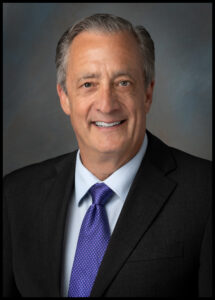
diversity
The strength of the Postal Service lies in its amazing diversity. Our workforce is representative of the diverse communities that we serve.
The Postal Service is one of the most diverse organizations in the nation.
LINK
Link, a daily news site for Postal Service employees, is available on any computer with internet access. The content is produced by a team of writers and editors based at USPS Headquarters in Washington, DC. Additional contributions come from postal employees across the nation. The site is updated with new articles, photos, graphics and videos each weekday.
Regular columns include “Off the Clock,” a column about employees and their after-hours pursuits, and “Milestones,” a regular roundup of employee appointments, awards and retirements.
Employees with USPS email addresses receive a Link email each weekday with the most recent stories. Employees without a Postal Service email address can sign up for the Link Weekly Highlights email at usps.link to have the week’s top stories delivered to their personal email inbox.
postal employees
Heads of industry. Hollywood legends. Sports heroes. Singers. Painters. Writers. And a couple presidents. All were postal employees before they became household names! Sixteen have even had their image or work featured on stamps.
See the list at about.usps.com/who/profile/history/personnel.htm.
postmasters
Women served as postmasters in this country more than a century before they won the right to vote.
African American postmasters
African Americans worked as postmasters, clerks and carriers beginning in the 1860s — 100 years before the Civil Rights Movement brought about wider opportunity in the American workplace.
postmaster
The first known female postmaster in the United Colonies was Mary Katharine Goddard in Baltimore in 1775.
female mail carrier
The first known female mail carrier was Sarah Black, who worked as a mail messenger in Charlestown, MD, in 1845.
African American postmaster
The first known African American postmaster was James W. Mason in Sunny Side, AR, in 1867.
African American carrier
The first known African American mail carrier was James B. Christian in Richmond, VA, in 1869.
postmaster general
The first female postmaster general was Megan J. Brennan, Washington, DC, 2015. Brennan's tenure was Feb. 1, 2015 – June 15, 2020.

mailman
John Prine, singer and songwriter, was a letter carrier in Maywood, IL, 1964-1969.
Those Who Serve
It’s not just any letter or package. It’s a picture of the kids. It’s a handmade scarf. It’s a favorite candy bar. It’s a pair of socks. It’s a piece of home. The Postal Service helps make sure these very special letters and packages make it to those who serve in the military — and their families with them — wherever they are around the globe.
resolving disputes
The Postal Service's Judicial Officer Department is a court system that conducts hearings and neutrally resolves a wide variety of disputes involving postal matters. Its independent decisions involve contract disputes, employee debt disputes, mail disputes and mail fraud, among many other areas.
USPS and mailers
Postal customer councils are Postal Service-affiliated networks connect business mailers with local Post Office leadership to develop more effective and profitable mailings through training and information sharing. Since the 1960s, these councils have been the go-to local resource for helping mailers learn, innovate and build their business. More information can be found at postalpro.usps.com/pcc.
Find more information at postalpro.usps.com/pcc.
MPS formed
The Military Postal Service was formed in 1980, consolidating the postal operations of the Army, Air Force, Navy and Marine Corps. The Department of Defense designated the Secretary of the Army as the single military mail manager.
Military and Diplomatic Mail in brief.
military veterans
We’re patriotic. The Postal Service employs nearly 70,000 military veterans, making it one of the largest employers of veterans in the country.
The organization has also issued more than 140 stamps honoring the nation’s military history.
fleet of feet
Approximately 6,450 carriers deliver mail entirely on foot — the USPS fleet of feet. Mail is also delivered by bicycle on select routes in Arizona and Florida, reducing emissions and saving fuel.
The U.S. Postal Service delivers more mail than any other post in the world, serving nearly 169 million addresses throughout the country. Everyone living the United States and its territories has access to postal products and services and pays the same for a First-Class Mail postage stamp, regardless of location.
eagle logo takes flight
Oct. 12, 1993: The USPS corporate logo — the “sonic eagle” — was unveiled.
owned properties
The Postal Service owns 8,515 properties around the country.
leased properties
The Postal Service has 22,798 leased properties.
new delivery points added
In 2024, 2 million new delivery points were added in the country.
residential delivery points
In 2024, the Postal Service delivered to 156 million residential addresses.
business delivery points
In 2024, the Postal Service delivered to 12.6 million business addresses.
every two weeks
In 2024, the Postal Service paid $2.1 billion every two weeks in salaries and benefits.
of the world's mail
Forty-four percent of the world's mail volume is processed and delivered by the U.S. Postal Service.
passport applications
The Postal Service accepted 7.9 million passport applications in 2024.
delivery points
The Postal Service prides itself on going the last mile to deliver the US Mail. In 2024, the Postal Service delivered mail and packages to 168.6 million delivery points nationwide.
delivery routes
The Postal Service has 235,461 delivery routes across the United States.
BIG business
The U.S. Postal Service is the core of the nation’s $1.9 trillion mailing industry, which employs more than 7.9 million people.
The U.S. Postal Service is the core of the nation’s $1.9 trillion mailing industry, which employs more than 7.9 million people.
These types of mail brought in most of the $79.5 billion in postal operating revenue in 2024:
postal vehicles
The Postal Service has 257,894 vehicles, one of the largest civilian fleets in the world.
PEOPLE, PLACES, POSTAGE
Postage stamps are miniature works of art designed to reflect the American experience. Stamps highlight heroes, history, milestones, achievements and natural wonders. There’s a story behind every stamp.
Learn more.
The Smithsonian’s National Postal Museum in Washington, DC, includes the world’s largest gallery dedicated to philately. For more information, go to postalmuseum.si.edu.
In 2024, USPS launched stampsforever.com, a website focusing on the stories behind the stamps.
stories
The Stamps Forever website — stanmpsforever.com — focuses on the stories behind our stamps, including their history and the creation process.
The Stamps Forever site also features news, designs and products associated with many of the stamps that USPS has released since fall 2023. Visit stampsforever.com for more information.
Stamp Advisory Committee
The Citizens’ Stamp Advisory Committee (CSAC) accepts and reviews new stamp suggestions and makes recommendations to the postmaster general.
CSAC committee members are appointed by the postmaster general and include individuals having a strong background in history, science, technology, art, education, sports and other subjects of public interest.
Anyone can submit stamp suggestions. Visit the CSAC page at about.usps.com/who/csac/ for additional information on the selection process and instructions for submitting ideas. Due to the time required for research and approval, suggestions for stamp subjects should be received at least three years prior to the proposed release.
for PTSD research
The Healing PTSD semipostal stamp has raised more than $2.2 million since 2019. More than 18 million Healing PTSD stamps have been sold.
for Alzheimer’s research
The Alzheimer’s semipostal stamp has raised nearly $1.6 million since 2017. More than 11 million Alzheimer’s stamps have been sold.
for species conservation
The Save Vanishing Species semipostal stamp has raised more than $8.2 million since 2011. Nearly 69 million Save Vanishing Species stamps have been sold.
woman on a stamp
The first American woman on a U.S. postage stamp was Martha Washington in 1902.
American on a stamp
The first Hispanic American on a stamp was U.S. Navy Adm. David Farragut in 1903.
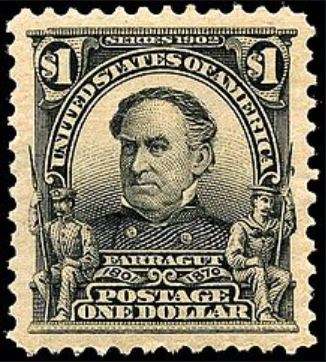
American on a stamp
The first Native American on a stamp was Pocahontas in 1907.
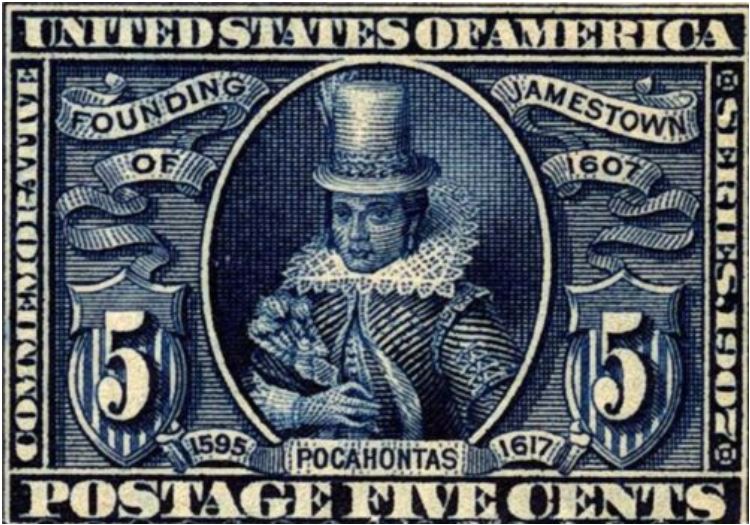
American on a stamp
The first African American on a stamp was educator, author and orator Booker T. Washington in 1940.
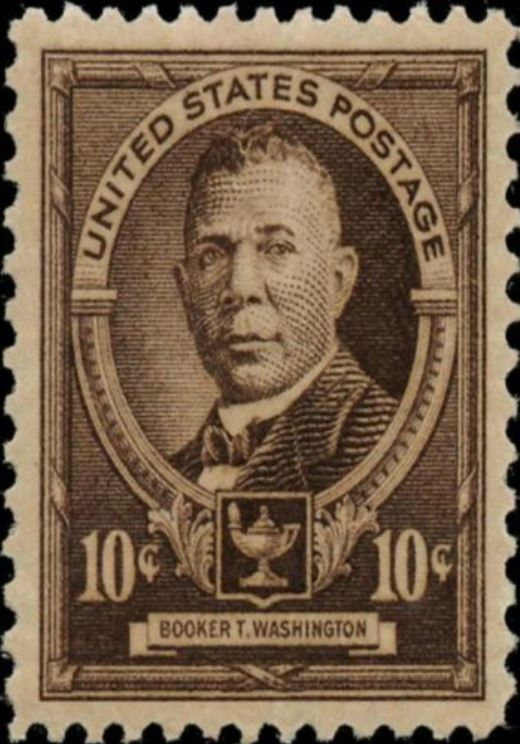
on stamps
All 50 states have been commemorated on postage stamps. They are each honored in 50-year increments from their founding date.
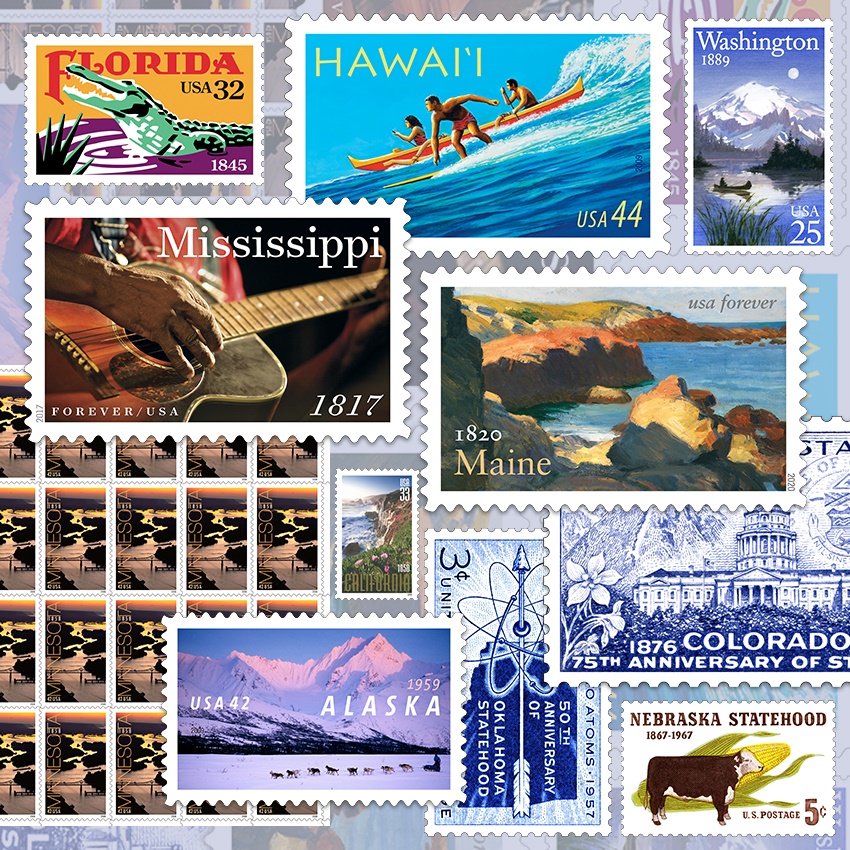
the landing
In 1992, pressure-sensitive, self-adhesive stamps rolled out nationally. By 2005, 98 percent of all stamps were this type. Today, all stamps are sticky.
and forever
The Postal Service’s first Forever stamp featured an image of the Liberty Bell and was issued on April 12, 2007, at Philadelphia’s Independence Hall.
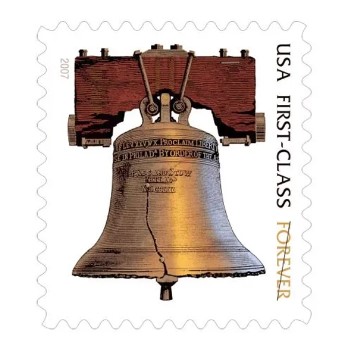
supporting causes
Semipostal stamps are First-Class Mail stamps sold at a price above the cost of a regular stamp to raise funds for designated causes. The dollar amounts below represent the funds we have transferred to the causes listed.
Supporting causes in the public interest.
Semipostal stamps are First-Class Mail stamps sold at a price above the cost of a regular stamp to raise funds for designated causes. The dollar amounts below represent the funds the Postal Service has transferred to the causes listed.
postage stamps printed
In 2024, 13.82 billion U.S. postage stamps were printed, and USPS received $4.01 billion in revenue from stamps and stamp product orders received by mail, telephone at 1-800-STAMP-24 and online at usps.com/stamps.
Postage stamps are miniature works of art designed to reflect the American experience. Stamps highlight heroes, history, milestones, achievements and natural wonders. There’s a story behind every stamp.

CENTS
For 78 cents, anyone can send a letter, regardless of geographic location, to anywhere in the United States and its territories. (Stamp price effective July 14, 2025.)
for breast cancer research
The Breast Cancer Research semipostal stamp has raised nearly $98 million since 1998. More than 1.1 billion Breast Cancer Research stamps have been sold.
THE TOP FACTS TO KNOW ABOUT THE POSTAL SERVICE
The Postal Service provides a vital public service, is a part of the nation’s critical infrastructure and was created by an act of Congress.
The statute that created the Postal Service begins with the following sentence: “The United States Postal Service shall be operated as a basic and fundamental service provided to the people by the Government of the United States, authorized by the Constitution, created by an Act of Congress, and supported by the people.” 39 U.S.C. §101(a).
Post Offices were first required to display the American flag in 1885 to comply with Treasury Department instructions. As of Nov. 7, 2019, Post Offices are required to fly the Prisoner of War (POW)-Missing in Action (MIA) flag on the same days that the American flag is flown.
In 2024, the Postal Service replaced 28,414 U.S. flags and 34,593 POW-MIA flags.
We’re universal. Everyone living in the United States and its territories (Puerto Rico, U.S. Virgin Islands, Guam, American Samoa and the Northern Mariana Islands) has access to postal products and services and pays the same for a First-Class Mail postage stamp regardless of the sender’s location.
We’re customer-focused. The Postal Service is committed to providing a positive customer experience.
With nearly 34,000 retail locations, more than 12 million daily visits on usps.com and serving 155.9 million residences and 12.6 million businesses typically six days a week, the Postal Service is committed to providing a positive customer experience.
The Postal Service has a long and storied history of creating new technologies for the American people, enabling faster, more efficient communication and safer, more secure delivery of correspondence and merchandise. For 250 years, it has adapted to meet the evolving needs of its customers.
We're patriotic. The Postal Service employs nearly 70,000 military veterans, making it one of the largest employers of veterans in the country.
The Postal Service has also issued more than 140 stamps honoring the nation’s military history, including the Armed Forces stamps commemorating the 250th anniversaries of the
U.S. Army, Navy and Marine Corps.
We're global. The Postal Service processes and delivers 44 percent of the world’s mail and is constantly innovating to make customer experiences better.
We're all heart. The Postal Service is the heart of the $1.9 trillion United States mailing industry, which employs more than 7.9 million people.
The Postal Service is the original social network, but that doesn’t mean we aren’t active on the other, newer social networks.
Facebook — facebook.com/usps
Instagram — instagram.com/uspostalservice
LinkedIn — linkedin.com/company/usps
Pinterest — pinterest.com/uspsstamps
Podcast — usps-mailin-it.simplecast.com/
Postal Blog — uspsblog.com
Threads — threads.com/@uspostalservice
X — x.com/usps
YouTube — youtube.com/usps
The Postal Service uses a vast network of people and advanced technologies to collect, process, transport and accurately deliver the nation's mail and packages in an increasingly digital world.
The strength of the Postal Service lies in its amazing diversity. Our workforce is representative of the diverse communities that we serve.
The Postal Service supports communities nationwide. These efforts include facilitating the nation’s largest one-day food drive, working with customers to prevent dog bites to mail carriers, educating customers on consumer protection and delivering holiday magic through USPS Operation Santa.
We have heroes among us. Postal employees regularly go above and beyond to protect the lives of the people they serve, including elderly or disabled customers, through the Carrier Alert Program. In 2024, the Postal Service recognized 109 heroic employees through the Postmaster General Heroes’ Program.
In 2024, the Postal Service recognized 109 employees through the Postmaster General Heroes’ Program.
We're greener than you think. The Postal Service is working hard to put its stamp on a greener tomorrow for the organization and the communities we serve. In 2024, the Postal Service recycled more than 269,000 tons of solid waste.
For more information on the Postal Service’s sustainability efforts and initiatives, visit usps.com/green.
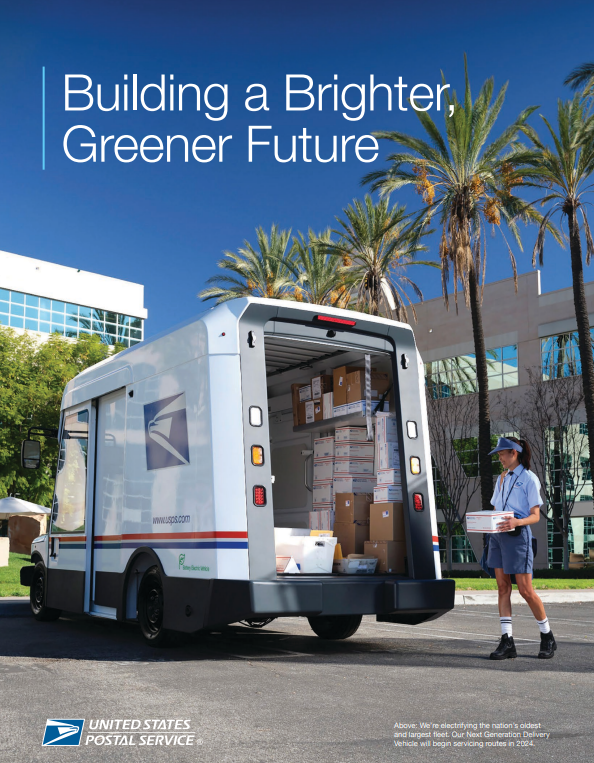
We’re a retail giant. The Postal Service has the nation’s largest retail network (33,780) — larger than Subway (20,484), Dollar General (20,376), Starbucks (15,270) and McDonald’s (13,598).
The Postal Service both competes and collaborates with the private sector. UPS and FedEx pay the Postal Service to deliver their ground packages, and the Postal Service pays UPS and FedEx for air transportation.
The U.S. Mail is protected by more than 200 federal laws enforced by the Postal Inspection Service, one of the nation's oldest law enforcement agencies.
The Postal Service generally receives no tax dollars for operating expenses and relies on the sale of postage, products and services to fund its operations.
| 2025 | 2024 | 2023 | 2022 | 2021 | 2020 | 2019 | 2018 | 2017 | 2016 | |
|---|---|---|---|---|---|---|---|---|---|---|
Annual operating revenue |
$79.5 B | $78.2 B | $78.8 B | $77 B | $73.1 B | $71.1 B | $70.6 B | $69.6 B | $71.4 B | |
Career employees* |
533,000 | 525,469 | 516,750 | 516,636 | 495,941 | 496,934 | 497,157 | 503,103 | 508,908 | |
Mail volume |
112.5 B | 116.2 B | 127.3 B | 128.9 B | 129.2 B | 142.6 B | 146.4 B | 149.5 B | 154.3 B | |
First-Class Mail volume |
44 B | 46 B | 48.9 B | 50.7 B | 52.6 B | 54.9 B | 56.7 B | 58.7 B | 61.2 B | |
| 2025 | 2024 | 2023 | 2022 | 2021 | 2020 | 2019 | 2018 | 2017 | 2016 | |
First-Class Single Piece Mail volume** |
10.7 B | 11.8 B | 12.9 B | 13.9 B | 15.2 B | 16.5 B | 17.5 B | 18.5 B | 19.7 B | |
Shipping/Package volume*** |
7.3 B | 7.1 B | 7.2 B | 7.6 B | 7.3 B | 6.2 B | 6.2 B | 5.7 B | 5.2 B | |
Marketing mail volume |
57.5 B | 59.4 B | 67.1 B | 66.2 B | 64.1 B | 75.7 B | 77.3 B | 78.3 B | 80.9 B |
Loading...
Trademarks
The Sonic Eagle Logo, the trade dress of USPS packaging, the Letter Carrier Uniform and the Postal Truck and the following marks are among the many trademarks owned by the United States Postal Service: Click-N-Ship®, Deliver The Win®, EDDM®, ePostage®, Every Door Direct Mail®, Express Mail®, First-Class™, First-Class Mail®, First-Class Package International Service®, Forever®, Global Express Guaranteed®, IMb®, Informed Delivery®, Intelligent Mail®, Label Broker™, Parcel Select®, P.O. Box™, Post Office®, Pony Express®, Postal Inspection Service™, PostalOne!®, Postal Police®, #PostalProud®, Priority Mail Express International®, Priority Mail Flat Rate®, Priority Mail International®, Priority: You®, Registered Mail™, Standard Mail®, The Postal Store®, United States Postal Inspection Service®, United States Postal Service®, U.S. Mail®, U.S. Postal Inspector™, U.S. Postal Service®, USPS®, USPS BlueEarth®, USPS Mobile®, USPS Operation Santa®, USPS Tracking®, usps.com®, We are people delivering to people™, ZIP+4® and ZIP Code™. This is not a comprehensive list of all Postal Service trademarks.
Non-Postal Trademarks
Dollar General®, Forest Stewardship Council®, How2Recycle®, McDonald’s®, National Dog Bite Prevention Week®, Starbucks®, Subway®, Sustainable Forestry Initiative®, The Climate Registry®.
Postal Facts 2024 provides the public with information about the U.S. Postal Service. The facts in this publication may be reproduced for the purpose of stating the fact itself, in a business, informational or academic context and the like, and in the body of text discussing factual subject matter relevant to the fact being presented. However, these facts may become outdated after publication and seeking the latest information is advised.
Produced by U.S. Postal Service Corporate Communications
© 2024 United States Postal Service. All rights reserved.
© 2016-2026 United States Postal Service. All rights reserved.
Trademarks
The Sonic Eagle Logo, the trade dress of USPS packaging, the Letter Carrier Uniform and the Postal Truck and the following marks are among the many trademarks owned by the United States Postal Service: Click-N-Ship®, Deliver The Win®, EDDM®, ePostage®, Every Door Direct Mail®, Express Mail®, First-Class™, First-Class Mail®, First-Class Package International Service®, Forever®, Global Express Guaranteed®, IMb®, Informed Delivery®, Intelligent Mail®, Label Broker™, Parcel Select®, P.O. Box™, Post Office®, Pony Express®, Postal Inspection Service™, PostalOne!®, Postal Police®, #PostalProud®, Priority Mail Express International®, Priority Mail Flat Rate®, Priority Mail International®, Priority: You®, Registered Mail™, Standard Mail®, The Postal Store®, United States Postal Inspection Service®, United States Postal Service®, U.S. Mail®, U.S. Postal Inspector™, U.S. Postal Service®, USPS®, USPS BlueEarth®, USPS Mobile®, USPS Operation Santa®, USPS Tracking®, usps.com®, We are people delivering to people™, ZIP+4® and ZIP Code™. This is not a comprehensive list of all Postal Service trademarks.
Non-Postal Trademarks
Dollar General®, Forest Stewardship Council®, How2Recycle®, McDonald’s®, National Dog Bite Prevention Week®, Starbucks®, Subway®, Sustainable Forestry Initiative®, The Climate Registry®.
Postal Facts 2024 provides the public with information about the U.S. Postal Service. The facts in this publication may be reproduced for the purpose of stating the fact itself, in a business, informational or academic context and the like, and in the body of text discussing factual subject matter relevant to the fact being presented. However, these facts may become outdated after publication and seeking the latest information is advised.
Produced by U.S. Postal Service Corporate Communications
© 2024 United States Postal Service. All rights reserved.
© 2016-2026 United States Postal Service. All rights reserved.